
Garmin has just revamped their Instinct series with the new Instinct 2 and smaller Instinct 2S, both offered in not just Solar, but approximately 87 other variants for things like surfing and military use. And while these units visually look near-identical from across the table, they’re entirely different inside – not just the hardware, but also far more importantly the software. As with before (and any other style thing in life), you’ll either love or hate the look of Instinct.
With the Instinct 2 series though, no longer is the watch focused entirely on the hiking/general outdoors realm, now it’s a full multisport/triathlon watch too! Complete with everything from power meter support to mountain bike metrics. It supports nearly every sensor type the Fenix series does, along with performance-focused metrics like training load/status, and recovery. Meanwhile, for day-to-day use, it’s now got Garmin Pay (Solar edition only), pregnancy and menstrual cycle tracking, as well as full Connect IQ app support. And like most Garmin wearables, it further extends its battery profile, now officially claiming ‘Forever power’ in more battery categories with the solar editions (don’t worry, I’ll put that to the test too).
But we’ll get into all those details and plenty more throughout this review. I’ve been testing the Instinct 2 series for quite some time, and have put in countless hours to figure out what works well…and what falls short. I’ve used the Instinct 2, Instinct 2 Solar, and 2S Solar – as well as recruiting my wife to put in hours and workouts on the Instinct 2S Solar. All of this includes a wide variety of conditions from on and off-road riding and running up volcanos, runs in freezing temps, openwater swims, cities to mountain passes, and everything in between. Oceans, forests, deserts, and more.
As usual, this watch is a media loaner, and it’ll go back to Garmin shortly. This review is not sponsored (nor does any company get to preview anything I review), and I don’t take any advertiser money from any companies I review. And as regular readers know, if something is crap, I’m gonna tell it brutally like it is – no matter the brand. Once this unit goes back, I’ll go out and get my own for any future testing needs. If you found this review useful, you can use the links at the bottom, or consider becoming a DCR Supporter which makes the site ad-free, while also getting access to a mostly weekly video series behind the scenes of the DCR Cave. And of course, it makes you awesome.
What’s New:
As always, I love lists. They’re easy to understand, easy to skim, and easy for me to type. Thus, here’s the massive slate of newness that’s on the Instinct 2 series compared to the previous Instinct – and I’m almost certain I’m missing things. I’ve been adding to this list for over a month now, even up till yesterday with new features I’ve discovered compared to the existing models. You’ll notice that every single item on this list has already been introduced on other Garmin watches over the last few years – except for the very last line item, for the Tactical editions.
– New second smaller size (Instinct 2S – 40mm, regular is 45mm)
– The new second smaller size is lighter (42g vs 52g)
– Increased resolution from 126×126 to 176×176 for Instinct 2, and to 156×156 for Instinct 2S
– Battery life increases – marked at ‘Unlimited’ in five different categories now
– Upgraded to Garmin Elevate Gen4 Optical HR Sensor
– Added Phone Configuration of watch data fields/pages/sports/settings
– Added Garmin Pay (Contactless NFC payments) on ***Solar & Dēzl Models Only***
– Added Connect IQ watch faces, apps, widgets, and data pages (to all units)
– Added Smart Trainer Support
– Added power meter support
– Added Bluetooth Smart sensor support (of all supported types)
– Added MTB Grit & Flow
– Added Daily Suggested Workouts
– Added newer Edge cycling profiles for Gravel & eMTB
– Added Multisport/Triathlon/Custom/SwimRun Profiles
– Added Manual Multisport profile
– Added Sleep Score & Sleep Insights (and on-watch display of sleep data)
– Added Fitness Age
– Added Health Snapshot
– Added Historical Data for Predicted Race finish times widgets (5K/10K/Half-Marathon/marathon)
– Added support for HRM-TRI/PRO/SWIM offloading
– Added Support for HRM-RUN/TRI/PRO & RD-POD Running Dynamics data support
– Added broadcasting of heart rate via Bluetooth Smart
– Added PulseOx (blood oxygenation levels)
– Added Menstrual Cycle and Pregnancy Tracking (with Garmin’s Connect IQ App)
– Added VO2Max tracking
– Added Heat & Altitude Acclimation
– Added Training Load/Status/Effect
– Added Recovery Time
– Added Virtual Run sport profile (for broadcasting to Zwift with Pace/cadence/HR data)
– Added Garmin Running Power Connect IQ App Support
– Added More Sport Profiles (Indoor climbing, Bouldering, Backcountry Skiing, XC Classic Ski, XC Skate Ski, Yoga, and more)
– Added HIIT Workouts
– Added PacePro Plan support (for running race pacing)
– Added heart rate from wrist while swimming (previously wasn’t permitted on older sensor)
– Added Golf Support: Including downloading courses & connecting to Approach CT10 sensors
– Added Widget Glances (Instinct 1 only had full-size widgets)
– Adding Track Run Mode (in Future Firmware Update)
– Surf Editions: Added Surfline App surf conditions support
– Surf Editions: Revamped surf algorithm to reduce false-positive waves (extra waves)
– Surf Editions: Added Windsurfing & Kiteboarding Activity
– Tactical Editions: Added new ‘Kill Switch’ option that resets/deletes all data quickly (master reset in a single button)
– Increased the onboard storage from 8MB to a whopping 18MB (just used for tiny course/activity/fitness files, usually less than 100KB per GPS-hour).
– Changed charging port location from left side on back, to bottom on back (still on back of course)
– Changed altimeter port location for increased accuracy/reliability
– Added an Instinct Series 2 Trucker edition (called Dēzl), for driving
– Prices: Instinct 2/2S is $349, Instinct 2/2S Solar is $449, Dēzl is $399
– Prices: Surf/Camo/Tactical variants $399 for non-Solar, and $499 for Solar
Got all that? Good. Wait, there’s one more thing – which is the battery life. For lack of anywhere else to stick it (the battery chart below), you’ll notice significant gains in battery life, namely for more categories that gain ‘forever power’, or “UNLIMITED” above. Essentially these are categories with the Solar editions where if you spend 3 hours per day outside in 50K lux conditions (sunny, but not crazy sunny), you’ll get forever battery life.
As for existing Instinct owners, sadly, there’s none of that for you. While Garmin has been somewhat good about adding newer features to older watches lately (such as Fenix 7 features to Fenix 6 watches), the Instinct 1 is not part of that cool-kids club. Garmin confirmed no new Instinct 2 features will go to the Instinct 1 watch, which for the most part hasn’t seen much in the way of new features at all during its three and a half year lifespan. I don’t know why, but it’s definitely disappointing.
Unboxing:
While each Garmin Instinct 2 series unit has a different box, the contents inside of them are all equally the same: Watch, charging cable, paper stuffs.
Here, let me demonstrate that. First up, the Garmin Instinct 2 & 2 Solar:
And again, with the Instinct 2S Solar too, just more colorful:
In terms of the box contents, there’s the charging cable – the same as almost all other Garmin watches the last half a decade or so:
And then some paper manuals you’ll have zero reason to read after this review:
And side by side with the original Garmin Instinct (left), and Instinct 2 Solar (Right):
Then, looking at how it compares to a semi-random-but-not-so-random assortment of watches:
Left to right: Garmin FR745, Suunto 5 Peak, Instinct 2S Solar (in Teal), Garmin Fenix 7S Solar Sapphire, Garmin Instinct 2 Solar, Garmin Fenix 7 Solar Sapphire, Polar Grit X Pro, COROS Vertix 2
And then finally, looking at weights, they are:
Instinct 2S Solar: 43g
Instinct 2: 53g
Instinct 2 Solar: Also 53g
Which, I can confirm on my little scales:
So let’s start using it.
The Basics:
So for this first section here, I’m going to focus on the basic aspects of the watch – so from simple things like buttons and the screen, to the daily activity tracking elements (step tracking, sleep, SpO2, etc…), and then general usability aspects. Anything sport/fitness-specific is in the next section, and then after that, all the routing stuff in its own section. Oh, also note that *anytime* I say “Instinct 2”, I’m talking about the entire Instinct 2 series product line, so the Instinct 2, Instinct 2S, and the solar variants of both.
With that, the Instinct 2 matches that of the Instinct 1 in terms of size and button layout, so we’ve got 5 buttons – three on the left and two on the right. This is the same layout as Garmin’s Fenix series, as well as countless other Garmin watches. In general, top right is select/enter, bottom right is back, and then left buttons are navigation focused.
Meanwhile, on the back you’ve got the newish Garmin Elevate Gen4 optical heart rate sensor. This sensor was introduced last spring with the Venu 2 series, and is now on numerous watches including the Forerunner 945 LTE, Fenix 7, & Epix watches. In other words, it’s Garmin’s top optical sensor – and in general for 24×7 usage especially it’s quite good. This includes your 24×7 heart rate, blood oxygen (pulse ox/SpO2) readings, breathing rate (respiration rate), and then heart rate derived metrics like stress and recovery.
Meanwhile, the straps are technically removable, so you can swap out for other 22mm bands if you want to, both generic ones as well as Garmin’s QuickFit ones. You’ll simply stick a paperclip in one side, and pop it out.
Now, the Instinct 2 series has a higher resolution display, 176×176 instead of 126×126, and frankly, in most cases it’s near impossible to notice the difference. This higher resolution display is essentially giving apps/widgets/watch faces more room to play with. However, you’ll notice small tweaks – for example, check out the ‘3’ in the upper right corner (orange is old watch), and you’ll notice they can make it thinner without looking scraggly. Or, maybe they just decided to change the font. But in general, most of the smaller numbers/letters got a touch bit thinner to allow for more of them, without being becoming pixelated.
Next, we’ve got the watch face. In the case of Instinct 2, it now supports Connect IQ watch faces for custom watch faces. However, there’s still a number of stock ones, all of which are customizable so you can put quite a bit of data on there of your own choosing. For example, each element in this watch face is customizable, including the one in the little circle as well as the small chart shown in the upper left.
Before we talk about the Connect IQ ones though, I will say I’m pretty disappointed that despite this massive slate of new performance sports features around training load, multisport/triathlon support, recovery, and plenty more metrics – none of these can be displayed as data points on stock watch faces (unlike almost every other Garmin performance-focused watch). For example, I can’t add training load or recovery times to these watch faces.
I asked Garmin what the deal there was, and they said that they didn’t see the core audience of this watch as being performance-focused as other units. Which is fine, except then I’d argue – why bother adding all those aforementioned features if that’s not the audience?
In any case, the good news is there’s Connect IQ support now in the Instinct 2 series. You can dig into these from the Connect IQ App.
Note that interestingly, the Connect IQ app won’t let you create ‘Face-It’ watch faces of your own, whereas it does for virtually all other watches. I presume that’s because this is a black & white display, versus a color display.
Getting beyond the watch face are the widget glances. If you’ve been a Garmin watcher for some time, you’ve probably forgotten that the old Instinct had regular full-size widgets, since most other watches made that change a few years ago. But now, you get the much nicer widget glances, which are smaller while scrolling, but can be opened up for more detail at full screen. Below you see there are three pieces of information per page:
And then I can tap into any of these widgets for full details, usually with multiple pages. For example, here’s the steps one:
There are tons of stock widgets, most of them set to be on by default, for things like steps, weather, calendar, notifications, sunrise/sunset, and so on. In fact, here’s a huge gallery of a pile of them on my watch:
But, you can also add more too, both Garmin ones and 3rd party ones, by just scrolling to the bottom of the list.
Next, there are many day-to-day metrics driven by that optical heart rate sensor on the back. For example, you’ve got 24×7 heart rate, which is constantly monitoring both your heart rate and breathing rate. You can see these metrics both on areas like the watch face as well as in the widgets:
But all this information is concurrently saved to the Garmin Connect platform, so you can access it on your smartphone or the website too:
The same is true of sleep. Sleep is automatically tracked each night, and then can be displayed both on the watch as well as on the website. For example, you’ll see your sleep score, as well as plain-English explanations of how you did or didn’t sleep enough, or well. I mostly get admonished for my efforts, though, they’re usually spot-on. This is an area that Garmin has really come a long way in over the years. These plain-English explanations of my night are the best of any wearable out there. And in terms of sleep time tracking, it gets that correct too (what time I fall asleep/wake up).
However, where Garmin falls though is their lack of any sort of nap/secondary sleep support (there’s no nap tracking at all). Further, I continue to see issues in the 6-8AM range where if I wake up then for a short period (say 3-5 minutes) and then go back to sleep, it’ll often incorrectly end my sleep. I’ve seen this issue for a while, and am optimistic that eventually it’ll get fixed. It’s an area that Oura and Whoop almost always handle better.
Further, there’s no support for any sort of smart-wake features, such as timed to a given sleep phase. Though, given how unreliable and inaccurate most sleep phase detection is on most wearables (and even supposed gold standard devices), this probably isn’t such a bad thing. You can still set regular alarms though.
In any case, like the heart rate metrics, all this sleep data is further available within the Garmin Connect app:
Along these same lines of optical HR driven metrics, is the Health Snapshot feature. This was added last spring with the Venu 2 series, and continues to be found on all new Garmin watches with the ELEVATE V4 sensor. The Health Snapshot feature basically aims to take many of the same data metrics Garmin tracks 24×7, but allow you to get a consolidated report of those data points on-demand.
The way it works is that you sit down and do nothing for 2 minutes, during which time the Health Snapshot feature will capture your: Resting heart rate, Breathing Rate, Blood Oxygen Level, Stress, and HRV level. To start it, you just scroll down to Health Snapshot, and then sit down. I’d recommend sitting for a minute or two first, especially if you’ve been active, then starting it.
Once you’re done you’ll get a tidy summary of all these metrics:
And then after that you can see all these data points on Garmin Connect, and even export out a .PDF file of them.
As I’ve noted in recent posts though, one of the challenges here is you can’t trend just the Health Snapshot values alone. Meaning, the point of doing a Health Snapshot is having control over when these values are gathered (to minimize outside factor variations), such as always doing them 10 minutes after waking up. This is especially true of HRV values, which Garmin doesn’t display any other place in their app/platform. Hopefully we’ll see Garmin add this though via the GCM app, as it’d be pretty trivial for them to do it there (given the probably hundreds of other metrics they allow you to trend over time).
Switching topics entirely, we’ve got some general bits, including smartphone notifications. The Instinct 2 series will show incoming notifications from your phone. Given there’s no cellular onboard the Instinct series, you’ll need to have your phone handy and within Bluetooth range. But, it’ll show the notification and you can dismiss it, or open it. Some basic emoji will show as well:
Similarly, you can accept or decline phone calls, which simply accepts or declines them on your phone. So accepting a call means it’ll accept the call on your phone, not on the watch (it doesn’t have a microphone or proper speaker, just a beeper). Oh, speaking of which, you can control the sounds/vibrations/tones within the settings menu, in case you want the unit to do something different in that arena:
Next up, the Instinct 2 Solar editions have Garmin Pay, which is contactless payments. You’ll need to ensure your bank is supported first. In the US, statistically speaking based on issuers supported, the answer is ‘probably’, whereas outside the US, the answer is ‘maybe’. Assuming you have your bank supported, it takes just a couple of seconds to add the card using the Garmin Connect app.
Then from there you’ll be able to pay for things by going into the controls menu and choosing Garmin Pay. It’ll ask you for a PIN, but as long as you leave it on your wrist, you’ll only have to do it once per 24hrs:
Then, just tap the NFC/contactless payment reader and you’re done. It’ll give a little checkbox in that circle portion of the screen:
Finally, while I’ll talk about battery and such later in the context of sport, note that there is a battery saver mode for the watch as a whole. When you toggle this it’ll roughly triple your battery capacity, and even more on Instinct 2/2S Solar – likely getting you unlimited power depending on your sun exposure. Battery saver mode turns off the optical HR sensor, turns off the phone connectivity, puts your watch face into a low power mode, turns off the backlight, and turns off PulseOx
I think the use cases here are probably pretty slim, but if you’re in a disconnected locale for extended periods of time anyway, and don’t care about your heart rate, this can save a boatload of battery power.
Solar Edition Features
Next, this section is only applicable to the Solar edition, because…well…its got sun-soaking-solar-specifications. Or something. I ran out of S words.
The Instinct series was the second set of Garmin devices to get solar, following the original Fenix 6X Solar edition. With the Instinct 1, it dramatically expanded the usefulness of solar in a Garmin watch. You see, while the Fenix 6 gained some benefit from solar, it really didn’t add a ton. It was mostly pretty minor because the solar areas were smaller/thinner. On the Instinct however, the far larger solar surface area, and that combined with the Instinct’s more power-friendly design meant a significant difference. Most notably, there were scenarios that the Instinct 1 Solar could get forever-power.
With the Instinct 2 Solar series, Garmin has basically doubled down on that. They’ve done it with two specific changes:
1) They increased the efficiency of the panels themselves (just like we saw with the Fenix 7 Solar units)
2) They increased the efficiency of the watch as a whole, from a power draw standpoint
Unlike the Fenix 7, there’s no solar size changes here. The panel sizes stay the same on Instinct. With the Instinct series, there’s two different solar panels at play on the watch:
A) The ‘empty’ space around the edges of the display. This semi-blocky area is used for solar panels, and is easily seen
B) The entire area atop the display but below the plastic layer, this is essentially invisible to you
Looking at the edge area first, if you look directly at the watch (not on angle), this mostly disappears. However, when viewing at an angle you’ll see the solar panels easily. This area can collect 100% of the sun’s rays. Well, technically it’s of course less than that, but in terms of simple relativity here, we’ll go with that being 100% from a Garmin spec standpoint.
Then, there’s the whole chunk atop the display – basically atop the words/text/numbers, and such. This area doesn’t gather as much solar goodness, only 10% of the sun’s rays. This is because if it were 100% you wouldn’t be able to see the screen. Whereas at 10%, it’s basically invisible to you and doesn’t impact clarity.
With the Instinct 2 Solar series units, you can see your solar power in a few different places. First up is on default watch faces, where it’ll show as a little timeline graph on the upper left side.
You can then scroll down in the widget glances, and see a timeline of the last 6 hours there. As you hover over that widget, in the upper right corner you’ll see a sun icon split up into 10 blocks. Each block represents 10% intensity. So basically more is better, meaning, the sun is brighter. On a cloudy day you might only get one or two blocks (if that). Whereas full sun at the beach in summer will light up not just the 10 blocks but the center sun as well:
And the same goes if you crack that open, looking at the varying intensity levels:
Though, there isn’t a way to see either of these widgets if in the middle of a workout, which is a little quirk. Albeit, there is a Garmin Connect IQ data field you can add if you want, that’ll both show you the current sun intensity levels, but also record it. Of course, you can also just look at the Garmin Connect mobile app and see your watches history there too:
So how much is solar worth exactly in terms of battery juice? Well, let’s start with this chart:
Garmin says the easiest way to think about it is that if you get 3-hours in 50K lux conditions, it’ll get you 1 hour of GPS time or 1 day of smartwatch/standby time. For context, 50K is semi-sunny weather, but not crazy summer sun at the beach time sun. You can find 50K sun in the winter without issue. Meanwhile, I can easily find 100K+ sun in the summer at the beach. What’s cool here is that if you over-achieve on finding sun, Garmin will leverage that. Meaning you’ll get more power faster.
And while all of Garmin’s specs only refer to 3 hours of sun time at 50K lux, you can very easily see how if you spend two weeks on vacation in the summer in the sun the majority of the day, you’ll blow through not just the 3 hours, but also the 50K lux, since you’ll likely be at 100K+ (and perhaps for 8-10 hours a day). And that’s where you can unlock ‘forever power’.
In fact, the Garmin Instinct Solar editions (both 1 and 2) will even show that with a forever icon for estimated battery life. Here’s a picture I took last summer with the Instinct 1 Solar showing it (I haven’t quite unlocked the forever power achievement mid-winter yet).
Now one notable difference between Fenix 7 and Instinct 2 Solar features is that the Instinct 2 won’t show you lux-hours. You can see this here on the Garmin Fenix 7, which basically shows you how many lux-hours you get per day, so you can start to do simple math. Ideally Garmin would also just do the math for you and say “You gained 3 days of smartwatch battery today, or 3 hours of GPS time”. But, in the case of Instinct 1 & 2, Garmin says the underlying technology they have doesn’t allow them to display lux-hours, which is a bummer. The Fenix 7 wasn’t on my wrist for that gap there, whereas the Instinct was, hence the solar gap.
Ok, so specs aside, what does battery burn look like? Well, for that we’re gonna look at three activities with varying levels of sun. In all three of these I wore the Instinct 2 non-Solar on one wrist, and the Instinct 2 Solar on the other wrist. None of these activities had jackets involved, all had warm sorta-tropical sun of the Canary Islands. But, the weather and terrain differed each day.
I was able to use the DCR Analyzer to plot the power profiles of each day. And each day they were configured identically (with courses, optical HR enabled, Bluetooth Live Tracking enabled, and in the case of cycling, also a power meter). They did however differ slightly in which data fields might have been open over the duration of these 5hr+ long activities. All were configured for GLONASS and 1-second recording rates. In other words, everything was enabled. No wimping out here.
First up, we’ve got a 5-hour long gravel/MTB bike adventure. The first chunk of this was in tall pine forests, with hazy skies. I eventually broke out of that, though still a bit hazy.
You can see here the Instinct 2 Solar unit was trending towards 24.57hrs of GPS battery life, whereas the instinct 2 without Solar was only trending towards 19.87hrs, so roughly 23% longer – despite non-ideal solar conditions.
Next, we’ve got a 6-hour hike. This started in the jungle with overcast skies, but then I broke out of that and was in a mix of sun and occasional clouds for the remainder, before ending up back in the jungle for the last hour. Note that while the Instinct 2 units had courses enabled, the Instinct 1 unit on my backpack did not.
As you can see here that the instinct 2 Solar was on track for 26.04hrs of GPS battery life, while the Instinct 2 non-Solar was at 20.16hrs, or 29% better battery burn for Solar. And again, this is with jungle conditions for the first portion, and cloud/jungle again for the last portion. In fact, if you look at the Instinct 2 Solar around the 55-minute marker, you see the purple line gets ‘longer’ between drops for about 2 hours till the 3hr marker. This is when I had the most sun.
Finally, we’ve got a 1hr 50min ride. This was in super sunny conditions, though occasionally in the forest – but at high altitude, so the pine trees were semi-sparse. Note on this workout I did *NOT* use a course file, but did have an ANT+ power meter connected as well as optical HR enabled and live tracking enabled.
This is a bit on the shorter side for where battery estimates work well in the DCR Analyzer (definitely don’t try and make judgments for workouts under an hour because there just might not be enough data points written to the file), but by 2hrs things have largely stabilized.
In any case, what you see is interesting. For whatever reason, the Instinct 2 non-Solar actually outperformed the Solar – this despite the Solar unit getting plenty of sun according to it (all of the solar pictures in this post were actually taken immediately following this ride). Of course, *BOTH UNITS* had battery burn rates above/better than their published specs. Perhaps there’s some quirky setting that’s different between my two units, though certainly not anything obvious to me. I’ve also triple-checked the files to ensure they weren’t switched, and re-pulled them from Garmin Connect just to be sure.
So yes, in summary, in most cases the solar aspects clearly make a big difference to battery life. And keep in mind that you can easily save way more battery life by doing things like turning off optical HR and using a chest strap (a massive savings), or not doing Live Tracking, or not loading a course, and so on.
As far as regular battery life beyond that, things seem to be roughly trending towards what Garmin specifies on their battery specs, though perhaps a little bit lower with my slightly higher use. I’d note that in my case, that’s assuming an average of 1hr of workouts per day this time of year (sometimes outside, sometimes inside). For the time periods where I’ve been doing crazy long adventures per day, obviously that’s going to impact battery life more than a boring day of doing nothing. But given I saw better than claimed battery life with the Fenix 7 & Epix, I’d say this is just ‘on-spec’. Which, is perfectly fine.
Sports Usage:
While the Instinct 2 can literally last forever in solar mode, one thing that’ll quickly dash those forever-power hopes is doing a GPS activity, and that falls under the scope of sports in this case. Of course, not all sports are GPS activities. For example, a pool swim or indoor gym workout don’t leverage the GPS, but instead various internal sensors and accelerometers – depending on the sport.
The Instinct 2 series significantly expanded the sport types, notably now including triathlon/multisport modes, as well as a slate of cycling-specific modes (like MTB with MTB-specific metrics). Here’s your complete look at all the sport modes you can configure (some of these fall within the sport menu, even if they’re more like utilities, but I’m listing them here for simplicity’s sake):
Bike Indoor, Run, Bike, Treadmill, Navigate, Expedition, Track Me, Project Waypoint, Area Calculation, Pulse Ox, Multisport, Trail Run, Virtual Run, Indoor Track, Walk, Hike, Climb, MTB, eBike, eMTB, Cyclocross, Gravel Bike, Bike Commute, Bike Tour, Road Bike, Pool Swim, Open Water, Triathlon, Swimrun, Ski, Snowboard, Climb Indoor, Bouldering, XC Classic Ski, XC Skate Ski, Backcountry Ski, Kayak, SUP, Row, Row Indoors, Strength, Cardio, HIIT, Yoga, Elliptical, Stair Stepper, Floor Climb, Tactical, Boat, Fish, Hunt, Golf, Health Snapshot, Other
You’ll notice that as of today, outdoor Track Mode is missing from the list. Garmin says that’s being added post-launch in a firmware update. I don’t have an exact timeframe for that, but it’s good that it’s being added, as I had a pretty long rant-paragraph written up about that omission that I was then able to delete.
In any event, once you’re ready to start a workout or race, go ahead and tap the upper right button, which brings you to the sport list:
This sport list is customizable, with the ability to add favorites to the top of the list, or simply access sports as a one-off thing lower down in the list. Also customizable are the data fields and pages for each sport mode. And the Instinct 2 joins the Fenix 7/Epix series in offering phone-based configuration of all these settings. So you can customize and configure everything from the exact sport profiles you use, to which metrics are shown on the data pages. Further, you can even configure almost all watch-wide settings like GPS satellite modes, alerts, and more. The only thing you can’t really do today is copy settings from an older device (like you can with a Garmin Edge series unit). So you’ll still have to set these up fresh.
On your phone, you’ll dive into the lower right tab of the Garmin Connect app and then device settings. From there you can see each sport profile and/or app, and then within that, all of the settings and data screens that you want to tweak or add.
And then more broadly, you’ve got settings like internal sensors like the barometer and how your device broadcasts your heart rate, though you can’t actually pair external sensors here (such as a cadence sensor or such).
Speaking of sensors, the Instinct 2 series has significantly expanded the slate of supported connected sensor types. These can be accessed within the Sensors & Accessories menu, and include the following types (both ANT+ & Bluetooth Smart supported, depending on the exact sensor type):
External Heart Rate, Speed/Cadence, Power, Foot Pod, VIRB, Tempe, RD Pod, XERO Laser Locations, inReach, DogTrack, Smart Trainer, Club Sensors
This is all in addition to the internal compass, barometer, altimeter, and optical HR/PulseOx sensor. You can pair and configure sensors, such as tweaking the crank length on power meters. Further, you can save multiple sensors of any given type, as well as enable/disable as you see fit.
For cycling power meters that support Cycling Dynamics, it’ll record that data for later viewing, such as seated/standing time or pedal center offset. Currently that’d be Garmin Vector/Rally pedals, and then Favero Assioma supports a subset of cycling dynamics. Similarly, for running it supports Running Dynamics metrics, from supported straps/sensors.
Ok, so headed way on back, let’s assume you’re starting a sport. In this case, we’ll go with a hike. Once you do so you’ll see the GPS status shown in the upper right corner, as well as estimated battery time along the top.
If you need more battery time, you can tweak settings in the Power Mode feature, to reduce certain settings. For example, turning off the optical HR sensor and using a chest strap (or nothing at all), is a massive savings. There are also lesser or greater reductions with different GPS modes too (taking off GLONASS saves about 10%, whereas going to UltraTrac will usually triple your battery life but dramatically reduce track accuracy).
This is also a good time to add any navigation/routes that you want. You can add previously designed courses, re-do an existing activity/workout’s route, go to a Saved Location, Sight ‘N’ Go, or input specific coordinates. One thing to keep in mind is there’s no Mapping on the Instinct series. Instead, it’s just a breadcrumb trail. But I’ll cover all that in the next section.
Now is also the time you’d add any structured workouts you wanted. In the case of hiking, that’s unlikely, but the same concept applies if you were in a run or other workout. In fact, for running and cycling you’ll get offered a Daily Suggested Workout, based on a blend of your recent activity and current recovery status. Things like poor sleep will impact it, and even scrub the workout for the day if things aren’t looking good. As you can see, it can be pretty serious about the workouts it’ll suggest.
During these workouts (either suggested ones, free training plans from Garmin Connect, or manually created ones), it’ll iterate through each step of the workout for you, specifying what to do next and alert you if you screw up. Of course, these workouts are based on your history, so you’re not gonna get slammed with a 75-minute interval session at 550w if your training doesn’t support it. Also, you can turn these off if you don’t want them.
With everything set, we’ll go ahead and press Start to begin recording. You can iterate through your data pages by pressing the up/down button. And if you’re wearing a jacket or such, I’d recommend locking the screen so that your coat doesn’t accidentally do bad things to the buttons/workout (to do that, just hold the upper left button to get to the controls menu). Here’s a few shots from a recent workout on what these look like:
With the Instinct 2 series, it’s still using the Sony GPS chipsets, and not using the newer multi-band GPS chipset found on the Garmin Epix & Fenix 7 series. Still, for the most part, I’ve found GPS accuracy just fine. I dive into that in the later sections. Also just fine is pace stability – keep in mind that the Instinct will show instant pace within 5-second blocks (e.g. 7:20/mile or 7:25/mile, but not 7:22/mile). You can though change to lap pace to get around that.
You can also add things like auto lap, auto pause, auto climb, and even 3D distance and speed for super-steep climbs/descents. We’ll talk about auto climb in the navigation section.
Once you’ve wrapped up your workout, you can tap the upper right button to end the workout, and you’ll get a summary screen. Within this screen you’ll see the newer training load metrics and recovery details, plus all your other totals are available too within the menus:
And then of course, all of these things are displayed as well within the Garmin Connect Mobile app, as well as Garmin Connect itself.
Of course, all of these workouts are then sent to any 3rd party platforms you’ve connected up like Strava, TrainingPeaks, Today’s Plan, Final Surge, and so on.
Taking a quick detour to talk about the newer Training Status and Training Load features here. These of course aren’t new to Garmin (they’re about 3-5 years old, depending on which portions you’re talking about), but they’re very much new to the Garmin Instinct series. The first is training status. You’ll have seen this above at the end of a workout, but you can also access it at any time from the widgets menu. The first page shows your overall status and whether fitness and load are going up or down:
You can tap that to get some plain English details about why it’s happy with your performance, or upset at you. This is one of those things that’s easy to make fun of, but in general, it’s usually right about my status/load. If I’m trying to do too much too quickly, it’ll say unproductive – because realistically if I go from 5-7hrs of workouts per week to 20hrs of workouts the next week, any coach would say the same. They’d also remind me I’m stupid and will get injured. The best smack-talk Garmin pulls out is the ‘Unproductive’ label. Though detraining is particularly stinging too.
I’d inversely counter for this particular workout that I’d be less stressed and more “productive” if the Instinct 2 hadn’t lost half my ride’s power data, but hey, I’m not salty about that or anything.
In any case, if you go down once you’ll see your VO2Max. These are calculated separately for cycling and running. Cycling VO2Max requires a power meter. This also shows your trending direction.
Press down again and you’ll get your 7-day training load. This is arguably the most useful chart, especially for figuring out whether or not you’re keeping your overall training load where you want it. If you tap the upper right button, you’ll get another simple explainer of what you’re doing right or wrong.
Now, as I noted in the earlier section about watch faces, it’s frustrating that none of these training load/recovery metrics can be added to the data customizations on stock watch faces, which is unlike other Garmin watches. Given the whole point of adding all this performance stuff is to use it, I don’t understand this gap.
Lastly in the training load area is the current recovery time. Keep in mind, this isn’t recovery until any workout, it’s ‘Recovery time till next hard workout’. In general, I find Garmin overestimates this a bit. Or is basically just a bit more cautious. Which again, is just like real life. Some coaches are more cautious to avoid injury, and some are more aggressive. To each their own.
You’ll also see your VO2Max for both sports, if you step back once, to the VO2Max Menu, showing both cycling and running:
It’ll also show your lactate threshold, as well as prediction with the new historical charts for 5K/10K/Marathon/Half-Marathon:
These data points now have logic in them that basically say you might be able to throw down a fast 5K based on your VO2Max, but unless you’ve put in the mileage, it’s not going to give you a correspondingly fast marathon time. So in my case, I haven’t been focused on long-runs in the middle of January/February, and thus, my times are skewed a bit slower on the longer distances.
Next, there’s both altitude and heat acclimation. These are based on time spent at altitude (namely during sleep), and then also time spent in hot weather (above 70°F). You’ll acclimate bit by bit over time. Also, the temperature data isn’t from your watch, but rather from nearby weather stations during the activity. Here you can see when I took this photo I had spent one night thus far at about 915m (3,000ft), so I had acclimated thus far to about 850m. Going up to ‘just’ 3,000 feet is pretty easy to acclimate, whereas going up to 10,000ft is a different ballgame.
Wrapping things up, just as a quick note on triathlon/multisport mode here, since that’s something that’s new here, it basically works the same as other Garmin units, meaning you can choose which sports you want if in a ‘multisport’ mode, if in a normal triathlon you’ll chose the triathlon sport profile. That then allows you to customize the three sports, and whether or not you want transitions recorded separately. Further, you can have the device auto-lock after each sport profile change.
To change sports you’ll press the lap button, but only after unlocking it. You can also set it to repeat if you want to. Again, it’s cool to see this added, as this actually makes the Instinct 2 series the lowest-priced Garmin watch capable of doing a triathlon (at $349). I mean, sure, you can buy an older watch for cheaper. But in terms of their official lineup, this is the least expensive option they have.
Finally, one more area to briefly mention is that the Instinct 2 series supports Bluetooth and ANT+ heart rate broadcasting. The original Instinct 1 series didn’t support Bluetooth broadcasting, though the Instinct 1 Solar editions did (different internals, 1.5 years later). You can see for example here I’ve got the Instinct 2 connected up to Zwift, broadcasting my heart rate, using just Bluetooth Smart.
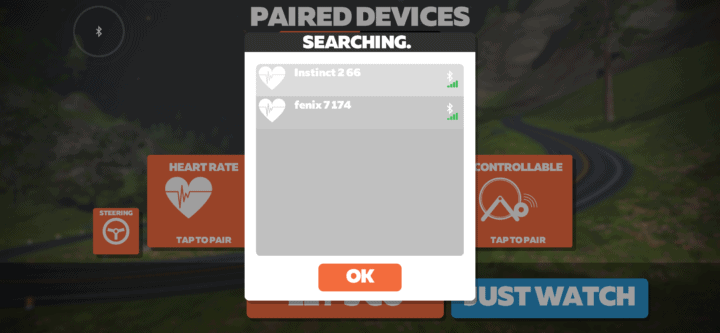
With that, let’s dive a bit deeper into following a course.
Routes & Navigation:
For this next section, I’m going to focus on the routing and navigational aspects of the Instinct 2. In other words, loading a course/route and following it – as well as non-preplanned routing (such as to a set of coordinates).
For the Instinct 2 series, there are no maps on the unit (of any sort), thus all navigation boils down to two categories: Following a breadcrumb trail of the planned route, or direct-to-point navigation (effectively a compass/arrow heading/direction). If one were to boil down the key navigation/routing related differences between the Instinct series and the Fenix series they’d be:
A) No Maps on Instinct, whereas Fenix has full mapping capabilities
B) No ClimbPro on Instinct, whereas Fenix has ClimbPro that automatically breaks down all ascents/descents with exact detail about each climb
C) No points of interest, roads, places or other information about what’s nearby on Instinct
There are of course numerous other details based upon those three foundations. For example, without maps, you can’t have the unit automatically create a 10KM or 50KM route for you at a new location (officially called ‘Round Trip Routes’). Similarly, there’s no ‘Up Ahead’ feature that was introduced on the Fenix 7, showing a breakdown of waypoints. Still, for years people have gotten by just fine and dandy without maps. Sure, I prefer maps because they give context to the surroundings, but that’s fine – and I’ve navigated just fine with the Instinct on numerous hikes in places I’ve never been before.
So with that, let’s start with getting a course onto the unit. There’s a multitude of ways that can occur, but essentially you can:
A) Import a .GPX/.TCX./etc file into the device or Garmin Connect
B) Create a route on another platform and have it automatically sync to the Instinct (e.g. Komoot, Strava, etc…)
C) Manually create a route on Garmin Connect or Garmin Connect Mobile
D) Re-do an existing activity again, as the route
For today’s route, I’m going to create it on Komoot first, and then let it sync over – but the end resultant is the same no matter which route option you choose above. Here’s my planned route up on Komoot:
From there, it’ll automatically get sent to my Instinct, because I’ve linked up my Garmin & Komoot accounts. Thus routes immediately get transferred. Though, immediacy is based on your watch syncing via Bluetooth or USB. Point being, don’t wait till you get to the trailhead to do this, or you’ll likely be hosed if connectivity is bad, since Garmin Connect requires internet connectivity to sync routes (whereas the Garmin Explore app doesn’t require internet, but has it’s own set of quirks, more on that later).
You can see this now on my Instinct, by going into any sport profile and choosing Navigation from the menu:
Once I open it up, I can look at the map (breadcrumb trail) and the elevation profile. I can also inverse the course and do it backwards (which, is ironically what I decided to do).
Now, I’ve had varying failures with the quirky 50-course point max limitation. My 80km planned gravel bike adventure failed this strongly, yet road rides were fine. And even more oddly, the above trail hike was fine one day, but failed it the next day.
This limitation isn’t new to the Instinct series, though, it appears to be applying sporadically. And interestingly, out of all the years I’ve done routing on Garmin devices, I’ve somehow never managed to hit the limit till today. Garmin says that’s likely because most of my really long adventures (e.g. 100 miles+) tend to be on roads rather than trails. Whereas on trails the course points go up very quickly (hence how I hit it at 80KM for a gravel/MTB route).
Still, I don’t understand why in 2022 this could even be a thing. How is merely 50 of anything a thing? Garmin says they are working on some improvements here for a future firmware update. I can only hope the improvement is no reasonably achievable limit at all.
In any case, with that, I was out and ready to navigate for my hike. You’ll see you can follow a breadcrumb trail of your route, and zoom in/out as you see fit.
Now, while the Instinct doesn’t have ClimbPro (which splits up each climb automatically and shows you how much altitude/distance/grade/etc to the top of the climb), it does have AutoClimb. This long-ago introduced feature will automatically show an extra data page as you start to ascend, with climbing-specific stats. Meaning, it’ll show you rate of climb and other elevation stats, which allows you to guesstimate how long things might take if you know your course well enough.
Ok, so with our hike going just fine, we can also route back to the start. In this case, we’ve got two basic options: Route direct to the start (called “Straight Line”, and route along our track to the start, called “TracBack”. However, oddly, on this hike, I only got the Trackback option. Which is somewhat ironic because when I took this photo, I was all of perhaps 500-700m from the finish. So in this case, it wanted to route me back some 18km of trails instead.
In any case, with a direct routing, you’re on your own, because it’s going to do so as the crow flies. So this is probably fine in a city where you can just zig-zag your way home (or, on a boat with nothing but open water/ocean). But out in the wilderness, this is largely a non-starter because it’ll assume you can walk over mountain ranges without trails or cross vicious rivers. Still, it’s theoretically an option if you need it.
This is similar then to the other ‘direct’ routing options, including routing to a set of coordinates. So if someone gives you a set of coordinates to route to, you can input that into the unit and get direct routing to that location:
Note that Instinct 2 Series supports basically every coordinate type known to mankind, in fact, you can find the massive list here. And once your coordinates are entered, then you’ll simply follow the arrow till you get there (or, die trying).
Finally, for lack of anywhere else to stick it, you’ve always got access to ABC functions via the ABC widget (altimeter, barometer, compass), by just tapping down a bunch (you may have to add it to the widget roll if you haven’t yet):
Note that you can also have just a dedicated widget for each of those three functions too. This will use the unit’s magnetic compass and barometric altimeter. And when you open up this widget, you get four data pages. The first is all three data points in one:
Then you’ve got a chart of the altimeter information. You can calibrate the altimeter here, choose whether to auto-calibrate, as well as whether to display the data in meters or feet.
Followed by the barometric pressure details. You can calibrate this, as well as change the plot type to 6hr/12hr/24hr/48hr. You can also change the sensor modes, storm alert options, and how it displays pressure.
Followed then by the compass. The compass also has calibration options, as well as the ability to change the mode, for example, from the display (degrees or mils), to how it displays North (true, magnetic, grid, user);
With that, I think I’ve covered everything there is to cover here on navigation and routing, so, let’s dive into whether or not any of that is actually accurate in the real world.
GPS & Altimeter Accuracy:
There’s likely no topic that stirs as much discussion and passion as GPS or heart rate accuracy. A watch could fall apart and give you dire electrical shocks while doing so, but if it shows you on the wrong side of the road? Oh hell no, bring on the fury of the internet!
GPS accuracy can be looked at in a number of different ways, but I prefer to look at it using a number of devices in real-world scenarios across a vast number of activities. I use 2-6 other devices at once, trying to get a clear picture of how a given set of devices handles conditions on a certain day. Conditions include everything from tree/building cover to weather.
Over the years, I’ve continued to tweak my GPS testing methodology. For example, I don’t place two units next to each other on my wrists, as that can impact signal. Instead, I’ll often carry other units by the straps, or attach them to the shoulder straps of my hydration pack or backpack. Plus, wearing multiple watches on the same wrist is well known to impact optical HR accuracy. Note that I sometimes will carry extra reference units over my hands/fingers, so as to keep them separated (but not use the HR for these reference units).
We’ll start things easy and increase difficulty with each successive set. First up is a run through the forest outside of Amsterdam. This has both an Instinct 2 and Instinct 2 Solar, and then is compared to a COROS Vertix 2 and Fenix 7 Solar Sapphire. Both the Instinct 2 watches are using GLONASS, while the Vertix 2/Fenix 7 are using multi-band GPS. And at a high level, things look relatively similar.
And in fact, when you dig into most sections, whether be in map or satellite view, they’re all mostly within a meter or two of each other:
But there are a number of cases where one of the Instinct units wander slightly more than the others off into the bushes, like you see here in purple with the Instinct 2 Solar offset by perhaps 5-10 meters from the actual track. Of course, also notice the COROS Vertix 2 then undercuts down in the lower left corner.
And then there are plenty of times, where like above, we see those undercutting on the Vertix 2 and the Instinct 2 is fine. For this entire run, it’s mostly in tree cover, though, given it’s winter there aren’t as many leaves.
This is largely a so-so accuracy run. I wouldn’t consider results from the Instinct 2 or Vertix 2 great, but just ‘shrug’. The Fenix 7 did actually nail this one pretty well.
Next, I wanted to briefly show this set, because it’s a blend of a simple neighborhood run, but also some twists around a building. And it’s a perfect example of where multi-band/dual-frequency on some higher-end units (Fenix 7/Epix/Vertix 2) really does out-perform non-multi-band GPS (Instinct 2/2 Solar). Whether or not it’s worth the cost is the real question then. As you can see, at a high level these are nearly identical.
But check out this little section where I ran through two buildings and then back around them together. The Epix & COROS Vertix 2 were absolutely steadfast in their perfection around this area. Spot-on with the path/road. Whereas the Instinct 2 and Venu 2 units using ‘lesser’ GPS technology jumped around a little bit. Now, do keep scale in mind here – we’re talking only about a bus length’s worth. But I thought it was a great example to demonstrate how these two technologies differ.
And just to help clarify, here’s the two buildings I’m talking about. They’re maybe 10-15 stories tall each, but otherwise there’s nothing around them.
Next, a quickie – this is a road bike ride. I’ve got a slate of head units on the bike, and the simple answer here is that it was boringly perfect.
Like I said – super boringly perfect. Even despite all these twists and turns due to construction.
So, let’s go off-road now. First up we’ve got a mountain/gravel bike ride, up into high altitude territory, with tons of tree cover, cliffs, and more. Also, a boatload of bike computers and watches. You can see the tracks swirling around through the mountainside there.
But here’s the thing – they’re all really good, and basically identical between the units, no matter where I look at this 5-hour adventure.
Take for example this section, with cliffs right on my shoulder, and tall trees everywhere else.
It looks perfectly fine:
As does every other part of it. This is arguably *THE* territory for this kind of watch, and it handled it without issue.
And as for elevation accuracy? Using their own automated altimeter calibration routines (meaning, I didn’t manually calibrate any of them), they were all within just a few meters the entire time, despite shifting weather.
So, let’s kick it up again, this time a hike deep into the jungle and then out along the ocean cliffsides. There’s no cell coverage here, so I was fully dependent on these watches getting me out of there.
And if you look at the vast number of watches I had with me, the simple reality is there were almost no major track differences. For example, this super tight switchback section – the Instinct 2 tracks look the same as the Fenix 7 & COROS Vertix 2 (in multi-band configs):
In fact, throughout this, there are virtually no appreciable differences.
And even if there were tiny differences – this brief blue line separation below – it’s for just a handful of meters, and only a couple of meters off. Note on this I also had an Instinct 1 attached to my backpack for GPS & altimeter tracks.
On the elevation side of this plot, things were OK, but still a bit of drift over the course of 5 hours on one of the Instinct 2 units. Note that weather had come in during this period, with a huge shift in both temps as well as weather systems (rain giving way to sun, and high winds). So you can see that green line slightly shifting over the course of the route. Note I placed my dot below at the point I touched the ocean (literally). The only unit to read the proper elevation of zero meters was the Fenix 7 which is because it’s the only unit that’s snapping its elevation to the underlying map data when appropriate.
I’ve got countless data sets from numerous activities, but all of them basically follow this relatively similar pattern.
So let’s go get wet and wrap things up on an openwater swim. This is the Instinct 2 on my left wrist, and the Fenix 7 Solar Sapphire on my right wrist, plus another GPS on a swim buoy behind me.
And as you can see, it’s virtually identical. The only difference is I forgot to hit end on the Fenix 7 wrist, and so when I got to the showers up on the beach it resumed, and thus the line across the beach. But in terms of the Instinct, there’s absolutely nothing wrong with this GPS track – it’s spot on.
So overall, where are we?
Well essentially, it’s got pretty good GPS performance, on par with most other watches in the market. There are virtually no major errors, and only a handful of minor errors lasting mere seconds and with minimal impact to overall GPS accuracy. In some of those situations, multi-band GPS would outperform it slightly, though, not all. There are far more cases where the differences were negligible one way or the other between them. That might change down the road with improvements on those higher-end units, whereas the GPS accuracy you see today for Instinct will likely remain the same, since I suspect Garmin will shift to the other multi-band GPS chipset for more watches in the future.
In terms of elevation accuracy – things are generally good/stable here, though sometimes minor drift can be a problem in changing weather conditions. I could mitigate that by manually calibrating if I had known values to go off of.
(Note: All of the charts in these accuracy sections were created using the DCR Analyzer tool. It allows you to compare power meters/trainers, heart rate, cadence, speed/pace, GPS tracks, and plenty more. You can use it as well for your own gadget comparisons, more details here.)
Heart Rate Accuracy:
Before we move on to the test results, note that optical HR sensor accuracy is rather varied from individual to individual. Aspects such as skin color, hair density, and position can impact accuracy. Position and how the band is worn, are *the most important* pieces. A unit with an optical HR sensor should be snug. It doesn’t need to leave marks, but you shouldn’t be able to slide a finger under the band (at least during workouts). You can wear it a tiny bit looser the rest of the day.
As such, I’ve tested all three Instinct series sizes in my workouts. These workouts include a wide variety of intensities and conditions, making them great for accuracy testing. Swims, bikes, runs, hikes, indoor workouts, and more.
Meanwhile, for HR accuracy testing I’m typically wearing a chest strap (either the Polar H10 or the Garmin HRM-PRO), as well as another optical HR sensor watch on the bicep (mostly the Polar Verity Sense, as well as the Whoop 4.0 band). Note that the numbers you see in the upper right corner of the charts below are *not* the averages, but rather just the exact point my mouse is sitting over. Note all this data is analyzed using the DCR Analyzer, details here.
Like with GPS, we’ll start easy here, and then build difficulty. This first set is a relatively steady-state effort, so in theory, it should be pretty easy. And indeed, it was – with all the units virtually identical to the reference chest straps and even the Whoop 4.0. There were two minor bobbles from one of the Instinct 2 units where it struggled for a few seconds each, but that’s it.
Next, here’s an indoor cycling workout. These are actually 30×30 intervals (meaning, 30 seconds hard, 30 seconds easy), though the chunks are long enough it just looks like one painful interval. Either way, there’s no reason to dive into this set in any more detail – it’s perfect and essentially flawless. It tracks spot-on compared to the chest strap.
Here’s another indoor cycling workout, this one with longer intervals. While we see some weird wobbles at the beginning as I warm-up, perhaps due to wrist movement or something, it settles out as I get into the workout, virtually perfect from that point forward, save one tiny couple-second spike.
Now, if we get a bit more complicated – we’ve got this 5-hour hike. Essentially this can be divided up into going up, and going down. I’ve highlighted the going-up sections in yellow. And what we see there is that it’s basically spot on (ignore the one green blip in that last section, I was trying to take a photo off-wrist). The sections going down weren’t ‘bad’, they were just fuzzier because the HR is lower (only 100bpm or so). Thus, we tend to see more variations there – from both optical HR sensors and straps alike. But point being, any time I was exerting effort, it was spot on.
Next, let’s look at that gravel/MTB bike adventure earlier. Remember, this is basically climbing for 4 hours, then descending for one hour. With a short lunch/food break in there before I descended. At a high level you see that things were basically perfectly fine when going up, and were a mess while I descended. This is pretty much the norm for cycling and wrist-based optical HR sensors.
There are two other ‘quirky’ moments in here. One around the 3hr marker where I had to hike the bike for a while, so the wrist that I was holding up the bike with showed wonky results. And then around the 3hr50min marker you see the line, that’s when one of the Instinct 2 units paused after it rebooted/crashed. I didn’t catch the pause right away, but it was just as I was stopping for food, hence the line.
If we look at the ascent though, it’s reasonably good – with the only differences really being when I’d descend quickly for a short period:
And then looking at the overall descent, it’s a mess, as expected:
Finally, switching over to some indoor lifting, I’ve got a workout from my wife. She was wearing the Instinct 2S Solar, and then a chest strap (HRM-PRO). The first portion of the workout was about 30 minutes on an indoor bike, and then she transitioned mid-way through to weights for the next 45 minutes.
As you can see, the bike portion was virtually identical. Pretty much spot on.
If we zoom into just the weights and core portion, you’ll notice that it’s a bit more jagged. Frankly, that’s to be expected. However, you’ll notice that the units are actually fairly similar – just with a few seconds of lag on the Instinct.
As with the GPS data sets, I’ve got plenty of data sets from these watches – but rather than repeat the same things over and over again, they all look basically like this.
Which is to say they’re largely pretty good. This is the same exact sensor as the Garmin Fenix 7 or Epix series (which is the Garmin ELEVATE V4 optical HR sensor). That sensor tends to do pretty well under higher intensity exercises, in running, cycling, and even strength training. It does tend to struggle a bit down in scenarios where significant pressure is placed on the wrist without a corresponding higher intensity heart rate (such as descending cycling).
I haven’t seen any huge large-scale inaccuracies or large timeframe inaccuracies though outside of those known ‘problem areas’ for optical HR sensors. Even in virtually all my running and intervals (including outside in the cold), it tracked just fine.
Instinct vs Fenix Comparison:

So about now you’re trying to figure out how these two watches differ. And don’t worry, I’ve got you covered. I’ve got a second post that’s somehow almost as long as this one, detailing all those differences and similarities between the two models.
Now you’ve got two options – you can either watch the video above, or, you can head over to the detailed Fenix 7 (and also Fenix 6) vs Instinct 2 comparison post, which covers much of the same pieces, except with a lot more words and in some cases a bit more detail. Whereas in the video I show more of them side by side in…well…video format.
Wrap-Up:
In doing this for the last dozen years or so, I don’t think there’s ever been a product I’ve reviewed that’s added as many features from the last iteration to it as the Instinct 2 series. All while still somehow looking virtually identical externally to the last unit. On one hand, it’s arguably the pinnacle example of how methodical Garmin is with their software features and product plans. After all, not a single feature on the Instinct 2 series is “new” to Garmin. All of them have debuted on other Garmin watches, largely within the last three years. But it’s Garmin doing what Garmin does best: Incrementally taking higher-end software features and rolling them down to less expensive models a few years later.
In terms of the execution of that, the Instinct 2 series does that well. It’s obviously not the most full-featured watch Garmin makes (for either sport/performance, or hiking/outdoors/etc usage), but in terms features for both camps of people, for the money, it’s actually the most capable device they make. Nothing in Garmin’s realm comes close to this many features at $349, unless you find a Drunk February Black Friday sale again of the Fenix 6 Series (which, you won’t).
And the effectiveness of the updated solar panel with lower battery consumption means that there’s a very strong chance that certain groups of people will indeed be able to have forever power for likely months at a time in the summer. It’s not hard if you’re spending even just a few hours outdoors in sunny summer conditions.
Now, I will say I’ve had my fair share of Instinct 2 series crashes over the last few weeks (across three different devices), roughly one per day, with the recent being Sunday during a ride. In no cases was there data loss, but in all cases it did restart my watch – kinda like a brief commercial break. However, that’s actually not been my biggest problems. Instead, it’s been numerous other issues like courses ghost-loading (basically being empty), or elevation profiles not loading, losing half my power data from one watch (yet the other Instinct recorded just fine), 1,500w random FTP values, phone-based config being finicky at best, and other unexplainable things. To Garmin’s credit, as fast as I’m finding issues, Garmin seems to be issuing new firmware versions with fixes. But as I sit here typing this up, there’s no more days left till launch. These devices are available as of this post going live, with the firmware I’m using. And all those issues are just the last three day’s worth. It’s not a smooth experience. My guess/hope based on how things have improved recently, is they’re probably still 2-4 weeks worth of dev time until things are stable.
Assuming though they can sort out these issues quickly, it’s frankly hard to beat this device in terms of features and price. As I said above, there’s absolutely nothing on the market even close to it at $349, Garmin or otherwise.
Found This Post Useful? Support The Site!
Hopefully you found this review/post useful. At the end of the day, I’m an athlete just like you looking for the most detail possible on a new purchase – so my review is written from the standpoint of how I used the device. The reviews generally take a lot of hours to put together, so it’s a fair bit of work (and labor of love). As you probably noticed by looking below, I also take time to answer all the questions posted in the comments – and there’s quite a bit of detail in there as well.
If you're shopping for the Garmin Instinct 2 or any other accessory items, please consider using the affiliate links below! As an Amazon Associate I earn from qualifying purchases. It doesn’t cost you anything extra, but your purchases help support this website a lot.
Here's a few other variants or sibling products that are worth considering:
And finally, here’s a handy list of accessories that work well with this unit (and some that I showed in the review). Given the unit pairs with ANT+ & Bluetooth Smart sensors, you can use just about anything though.
And of course – you can always sign-up to be a DCR Supporter! That gets you an ad-free DCR, access to the DCR Quarantine Corner video series packed with behind the scenes tidbits...and it also makes you awesome. And being awesome is what it’s all about!
Thanks for reading! And as always, feel free to post comments or questions in the comments section below, I’ll be happy to try and answer them as quickly as possible. And lastly, if you felt this review was useful – I always appreciate feedback in the comments below. Thanks!



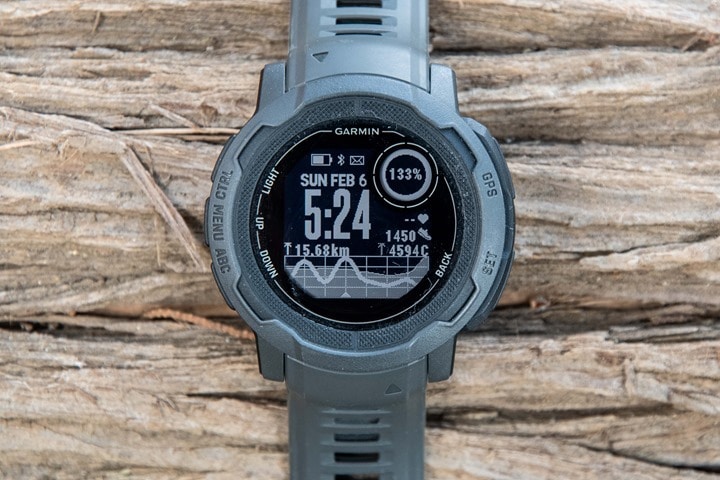
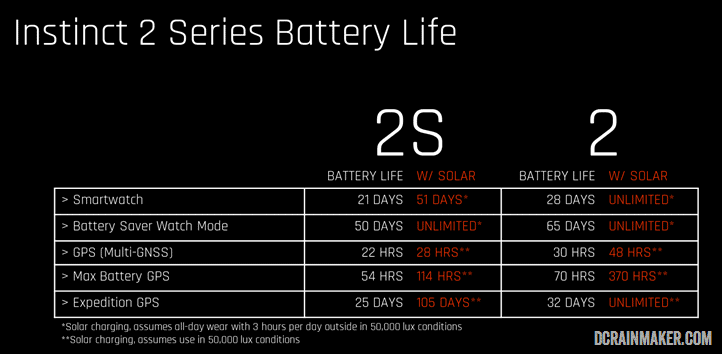
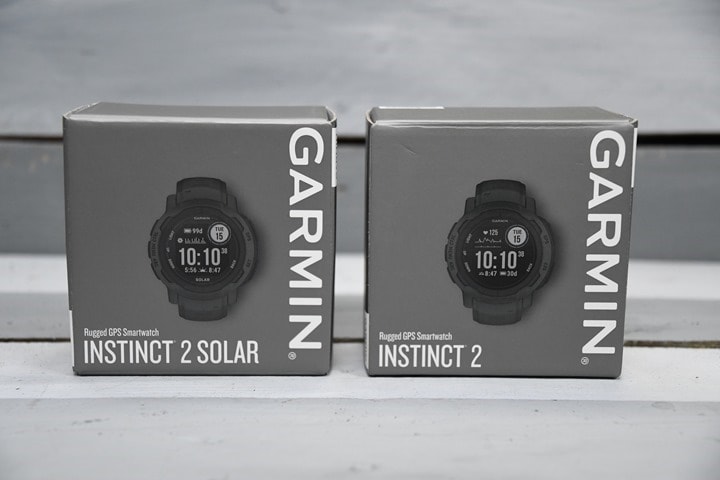
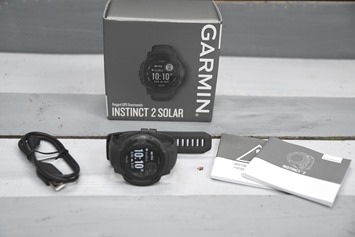
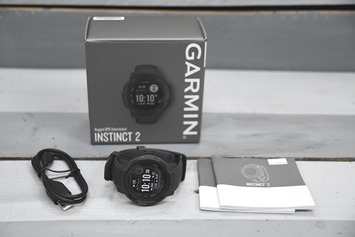
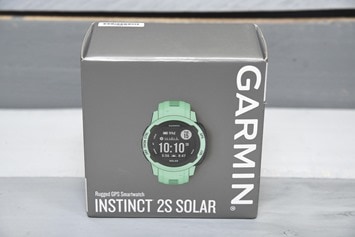
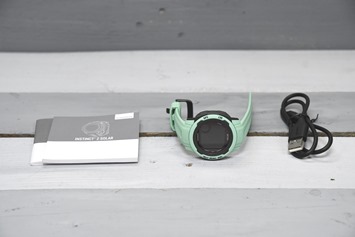
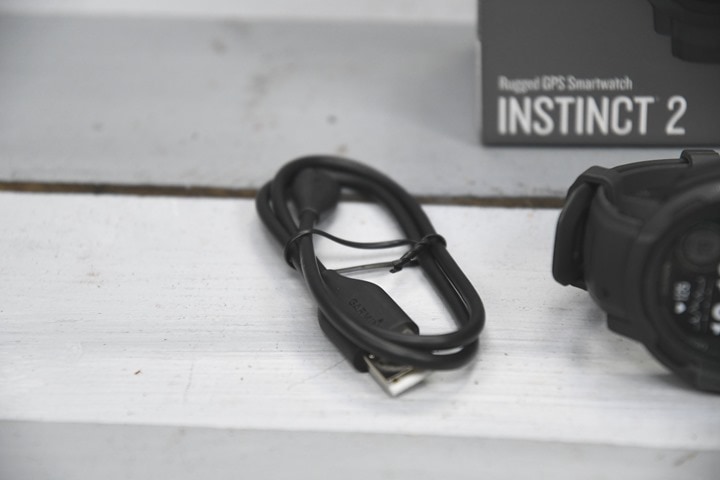

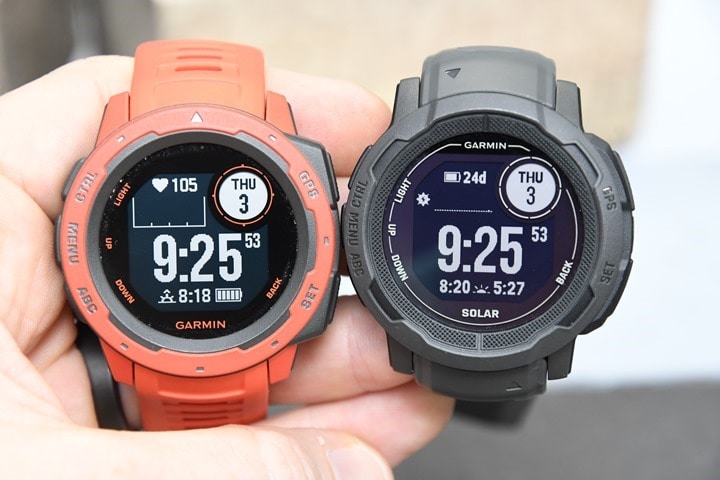
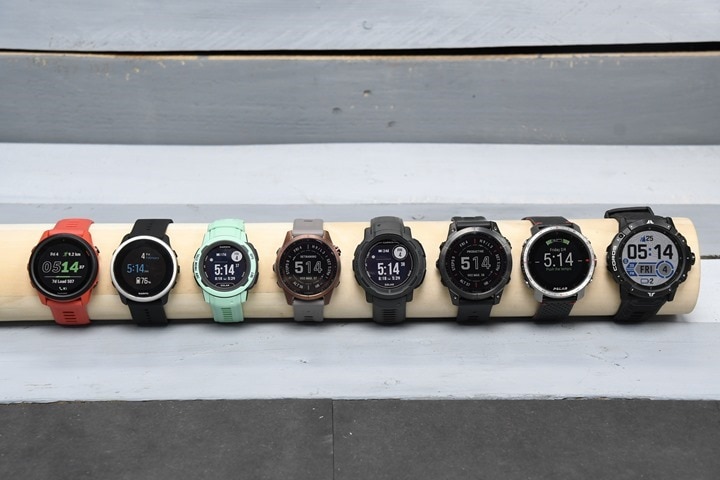
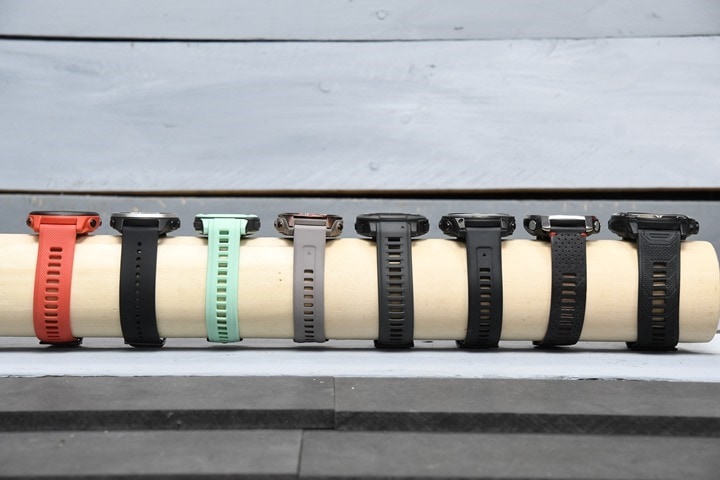
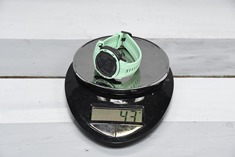
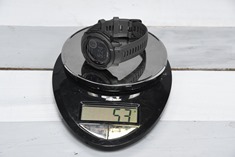
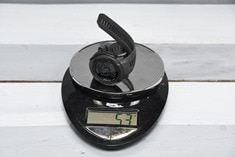
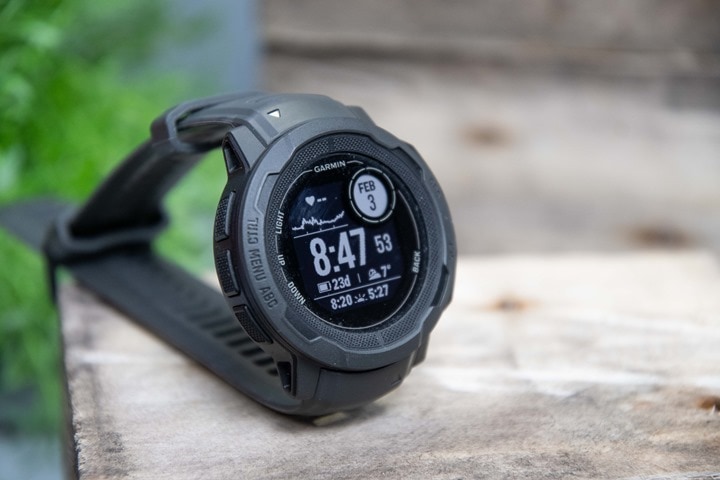
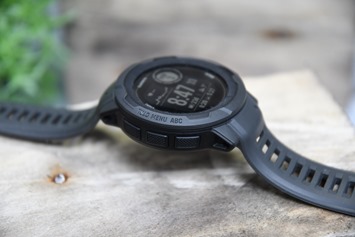
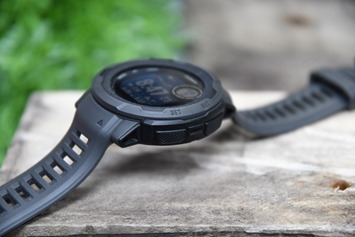
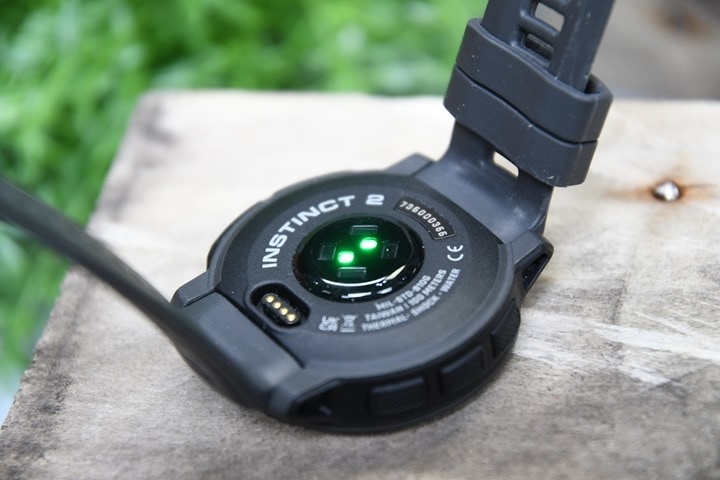
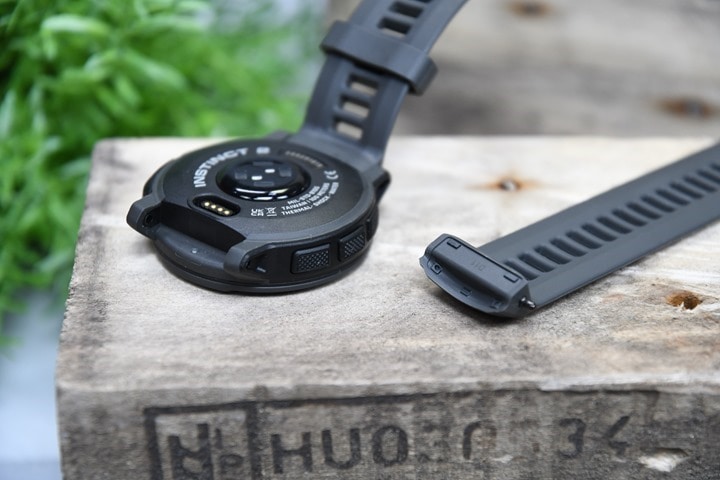
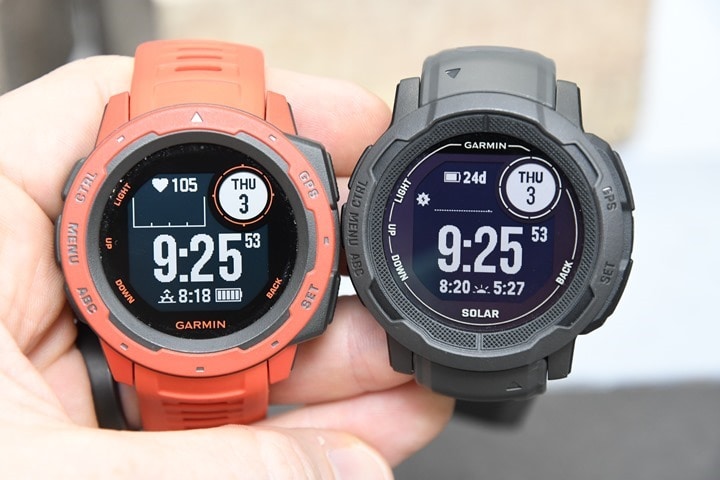
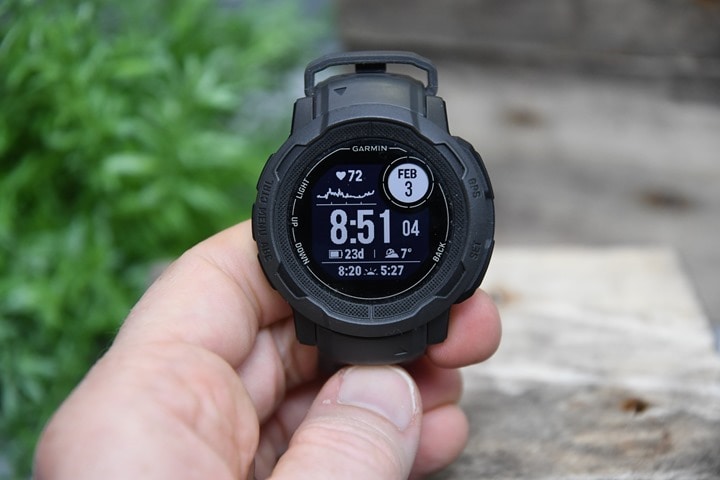
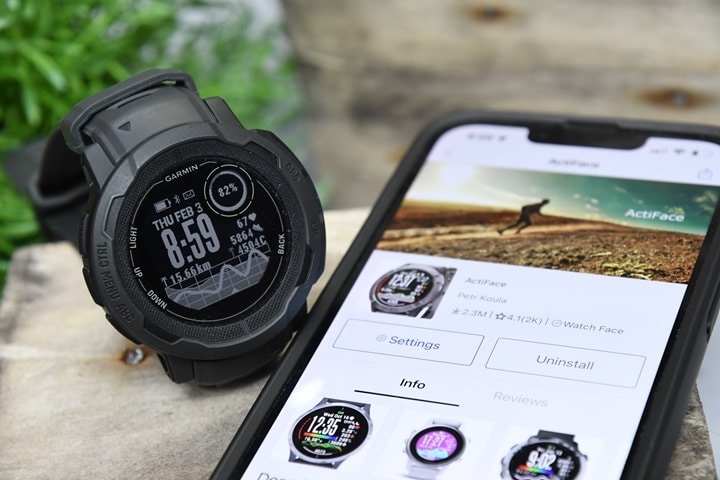
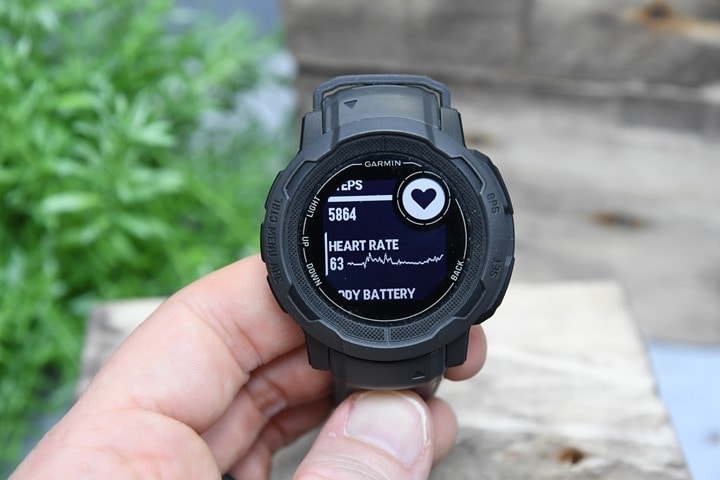
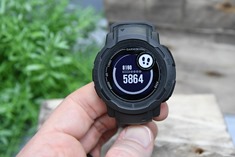
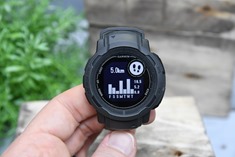
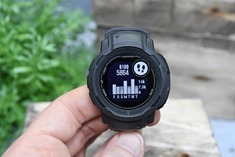
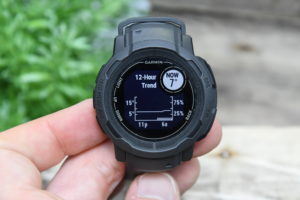
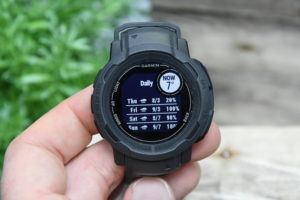
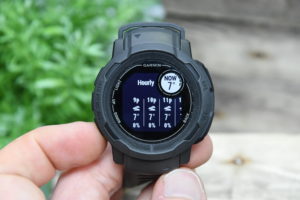
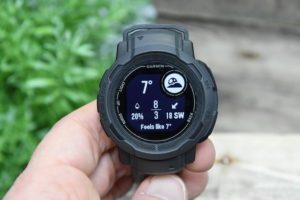
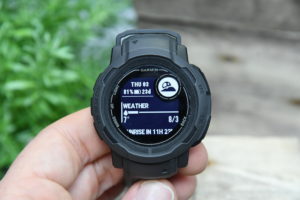
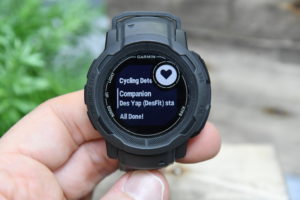
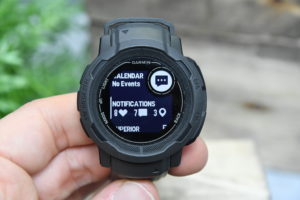
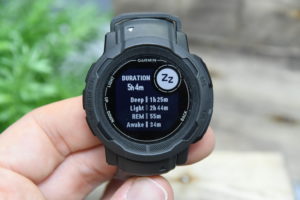
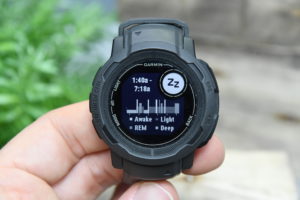
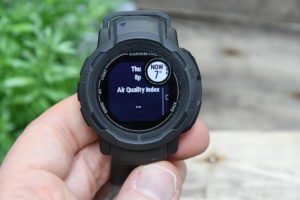
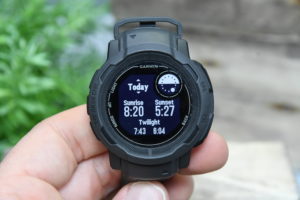
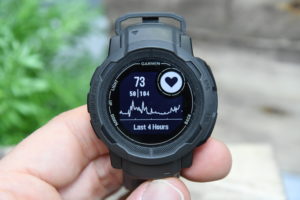
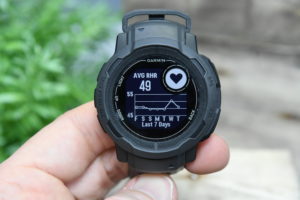
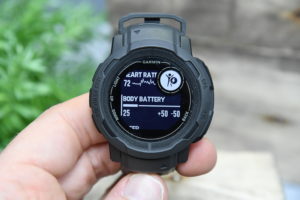
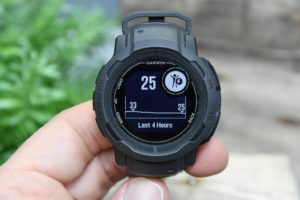
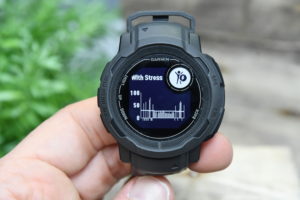
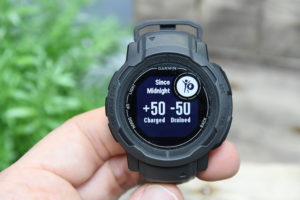
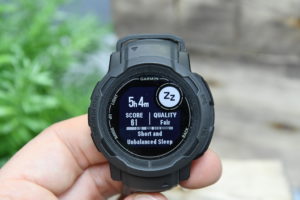
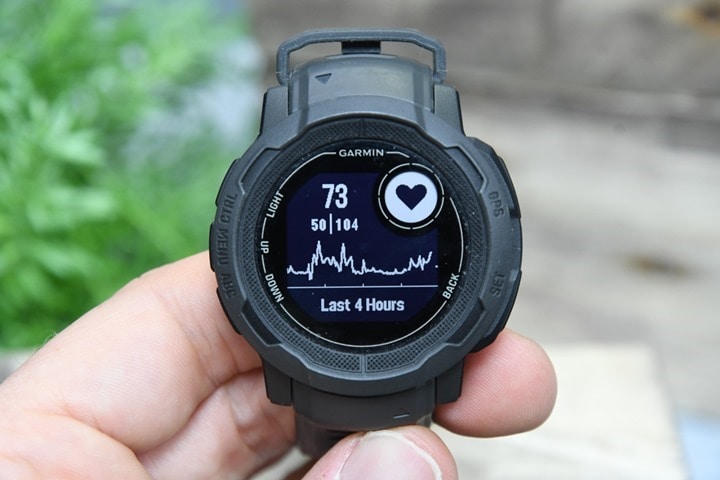
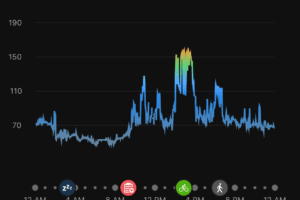
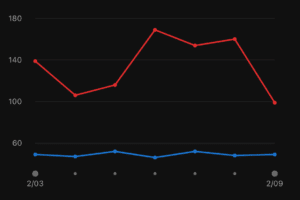
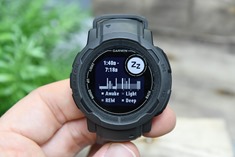
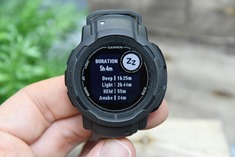
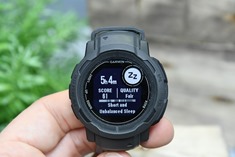
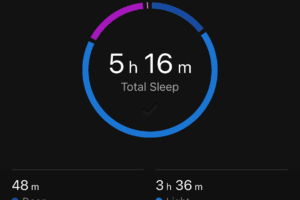
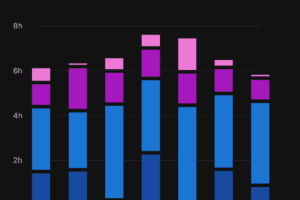
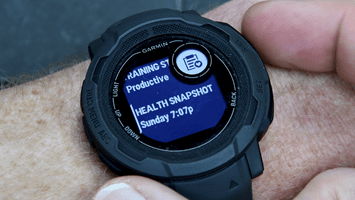
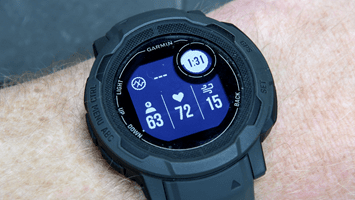
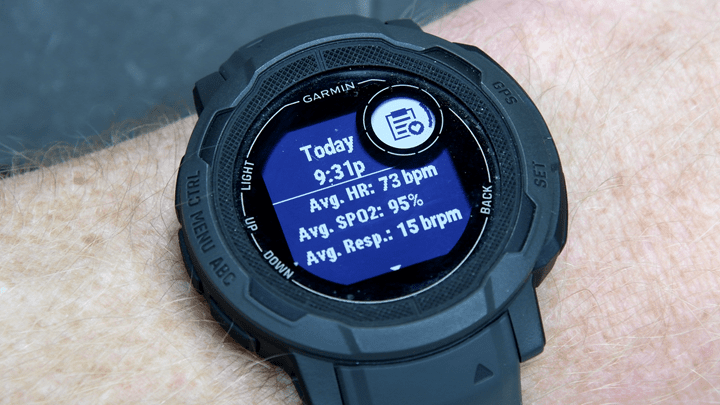
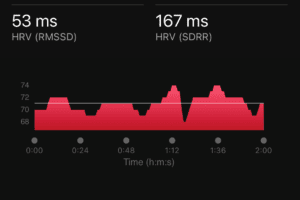
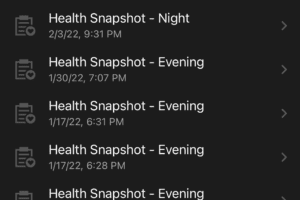
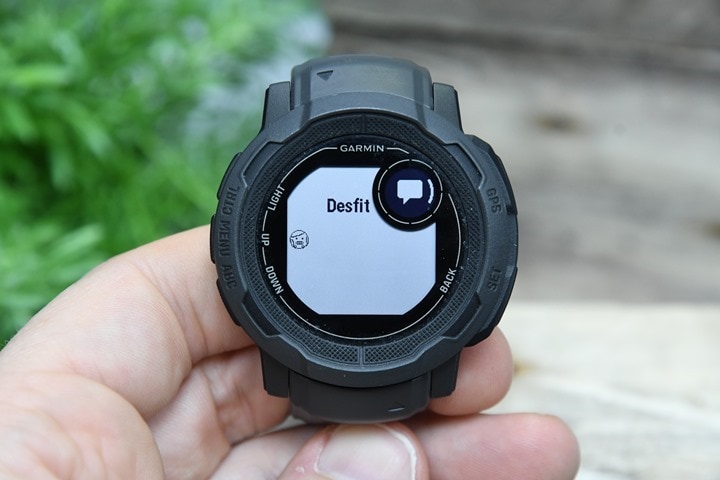
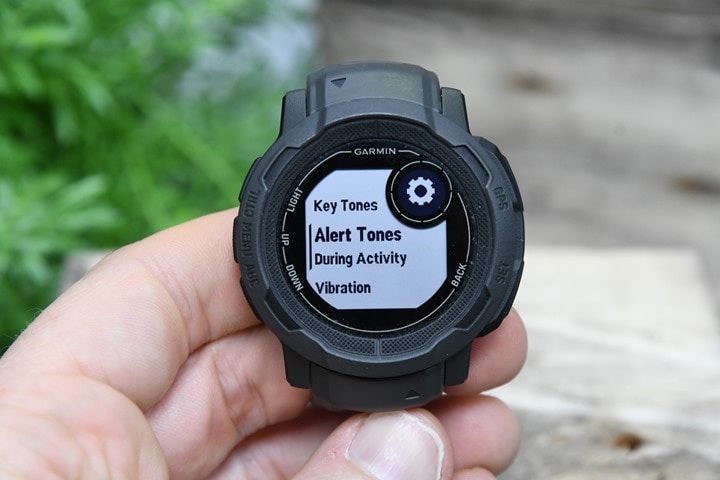
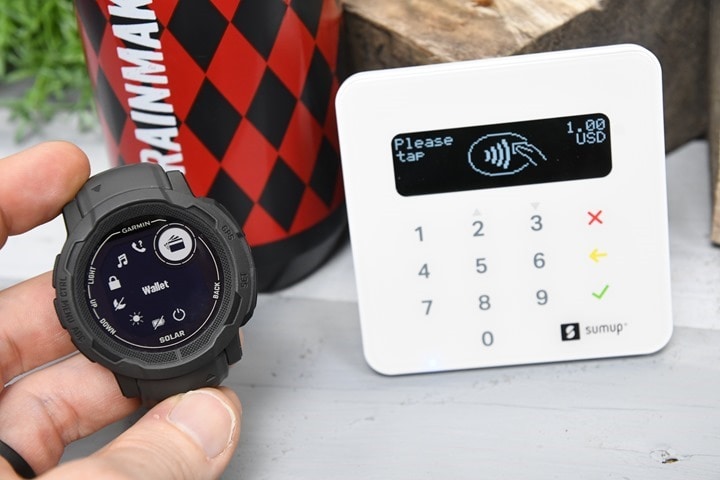
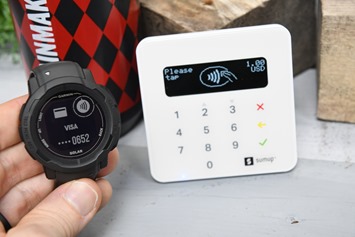
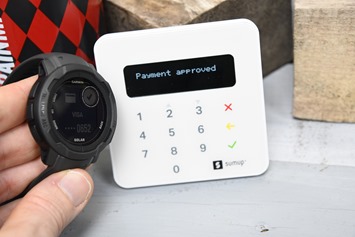
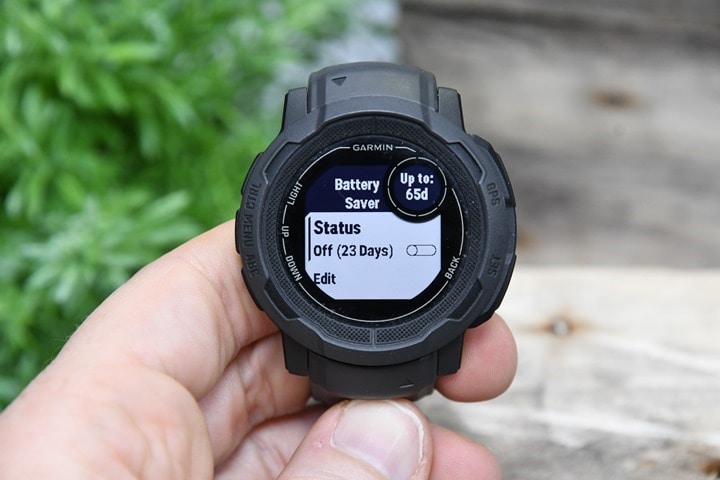
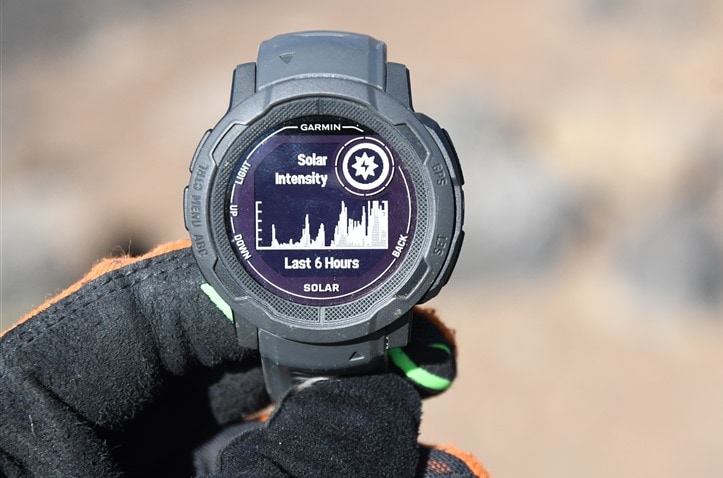
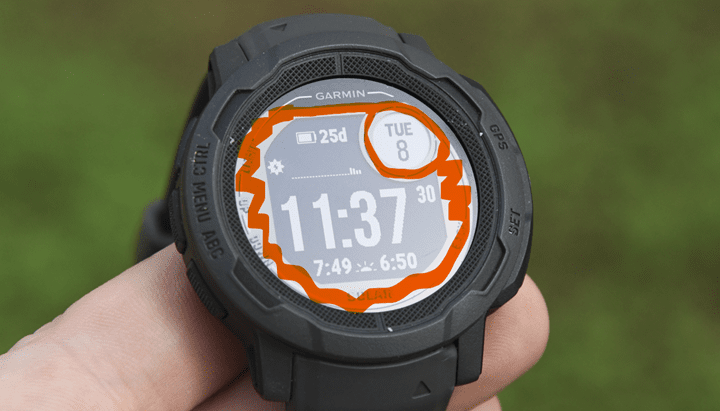
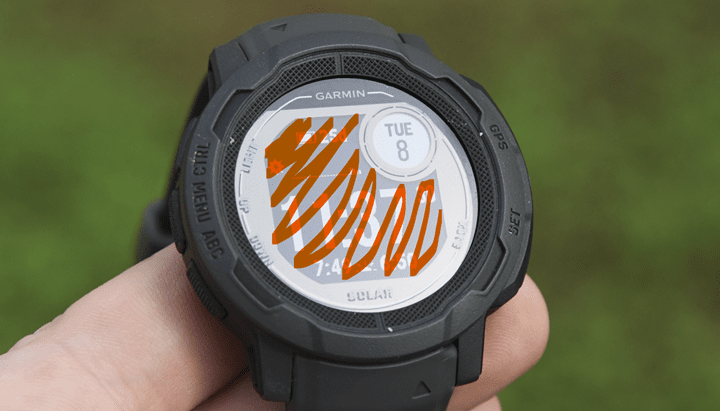
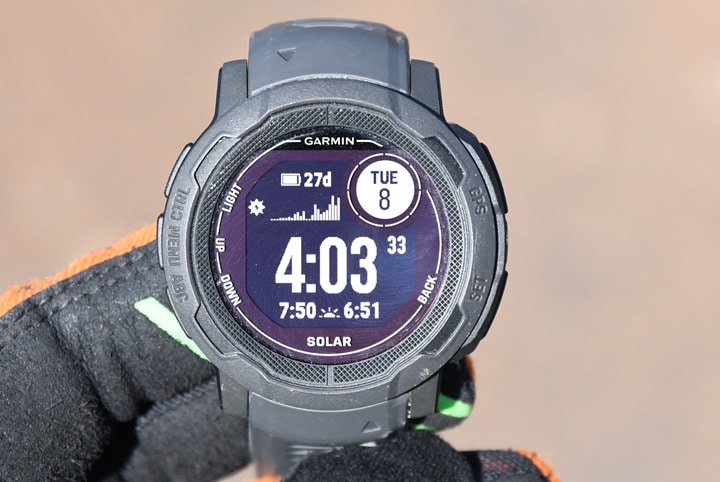
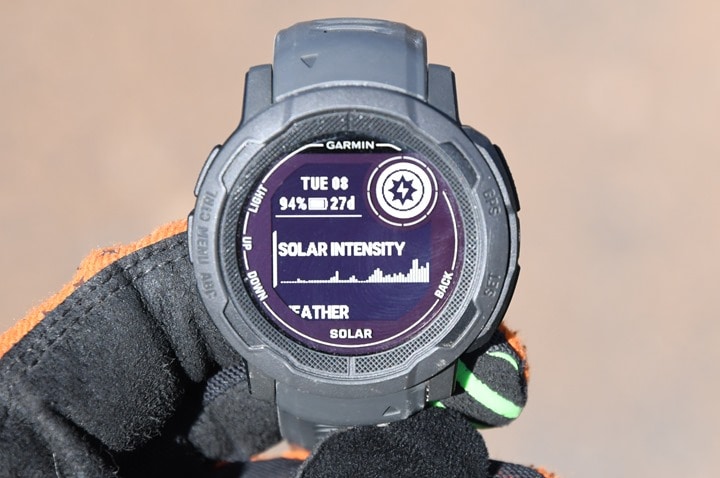
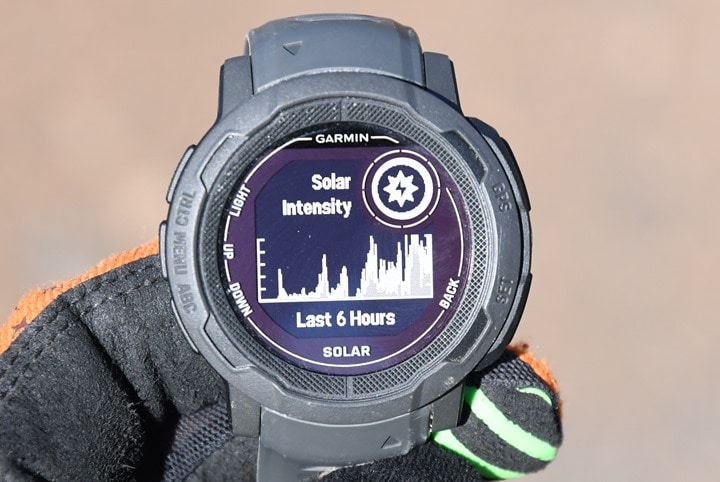
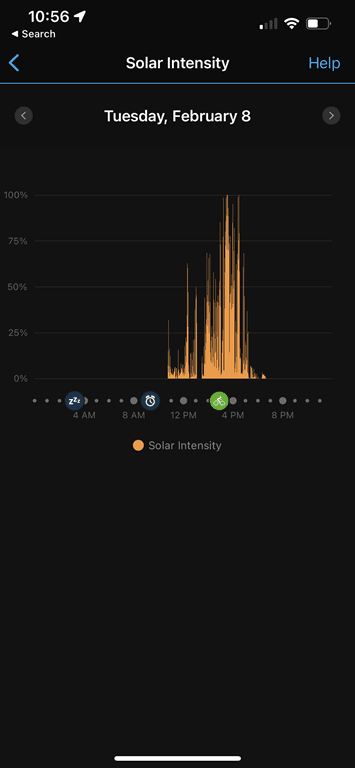
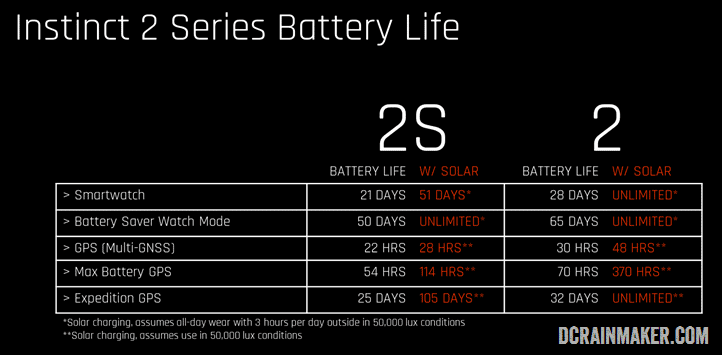
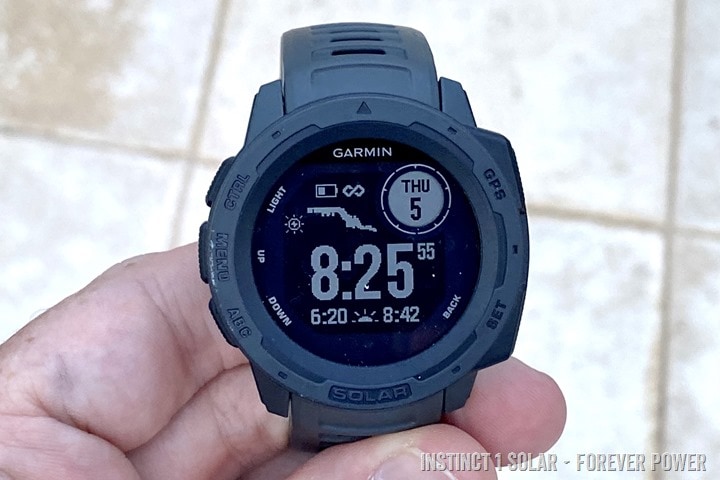
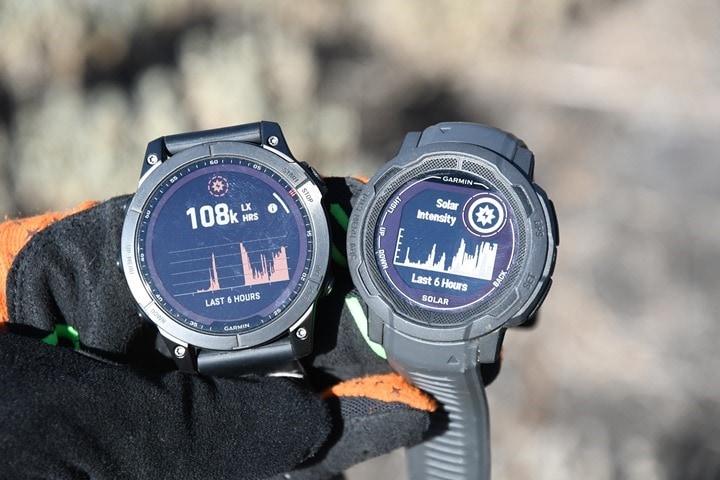
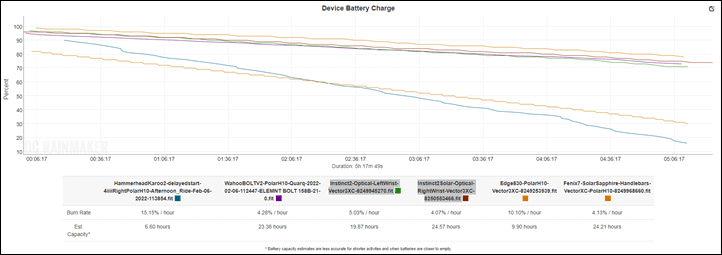
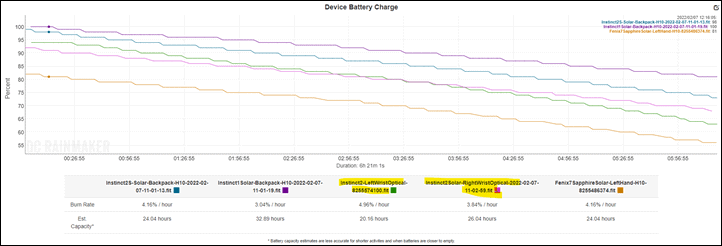

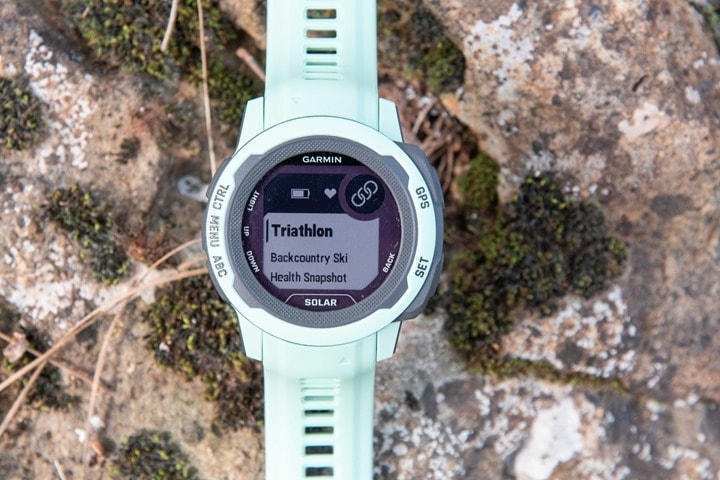
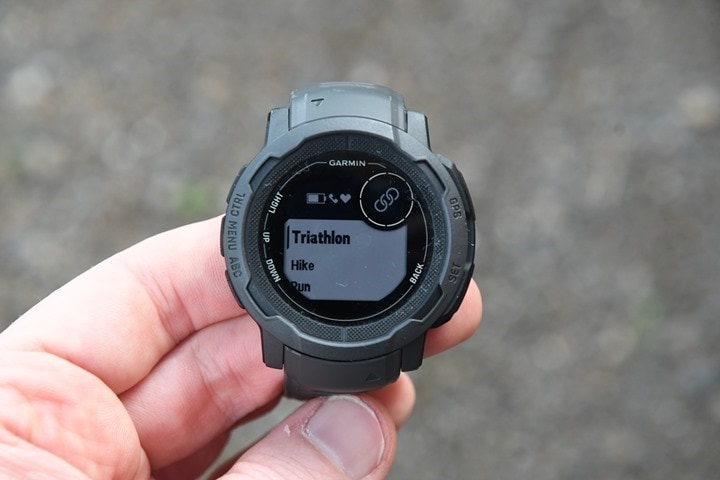
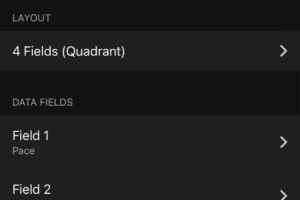
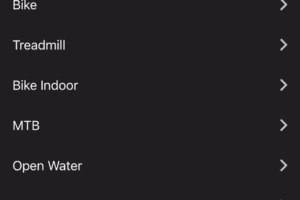
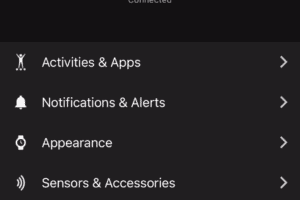
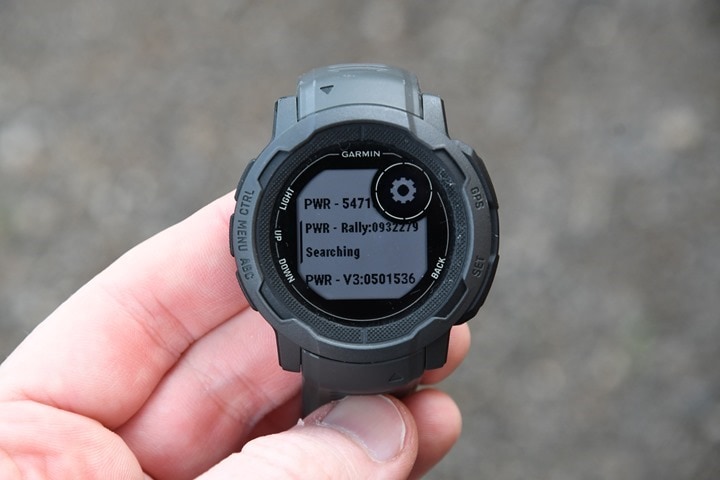
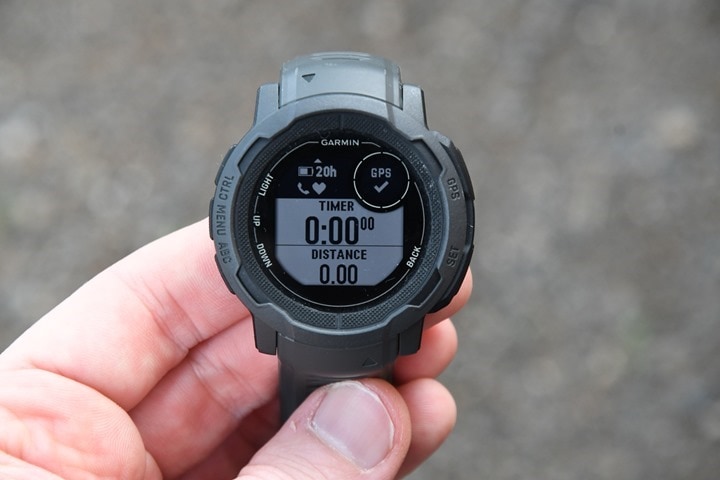
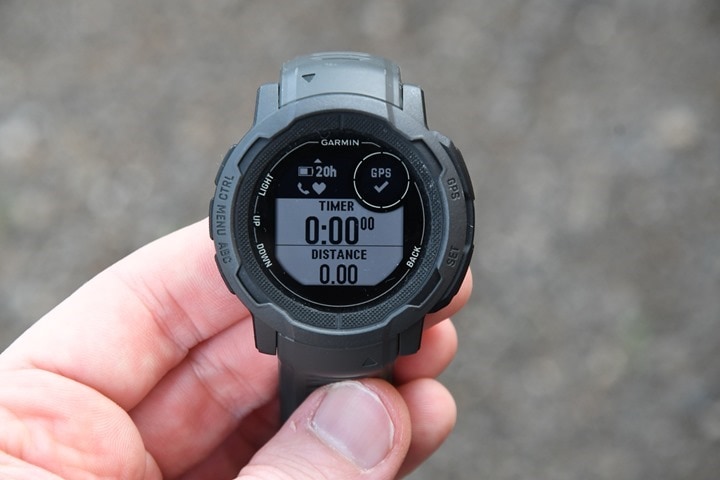
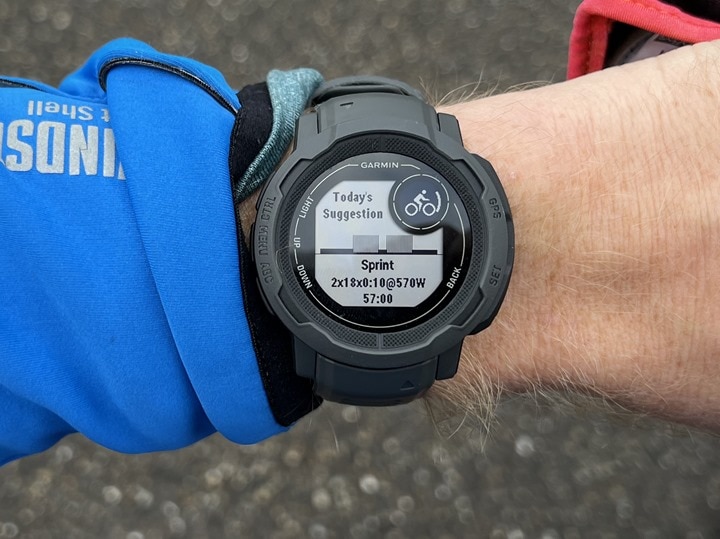
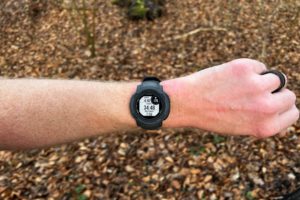
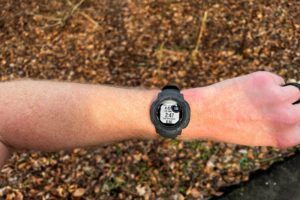
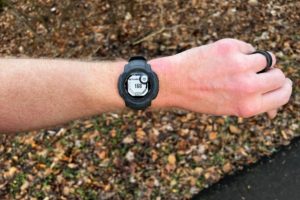
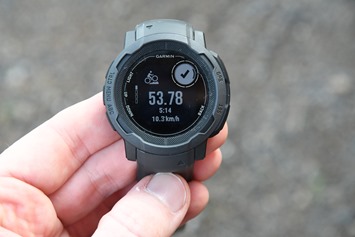
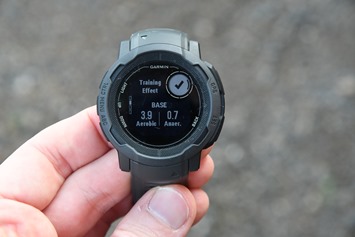
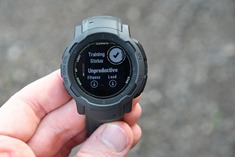
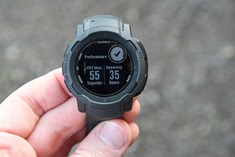
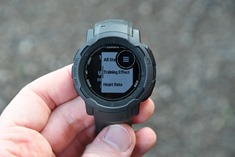
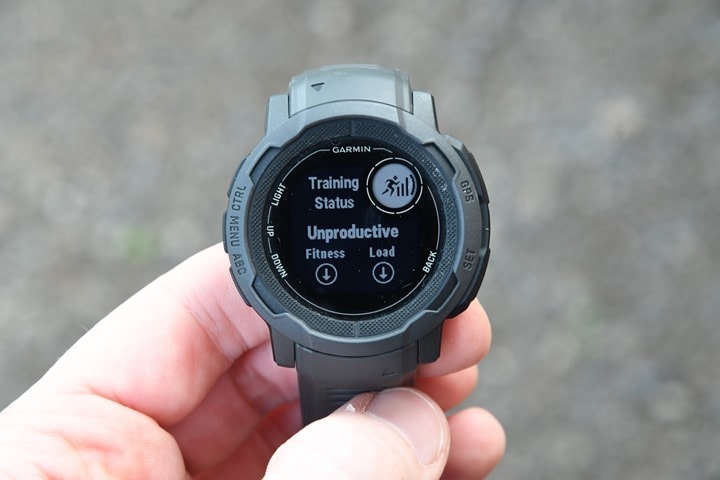
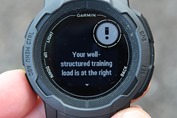
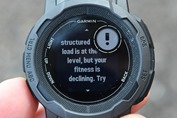
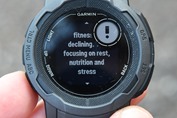
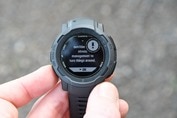
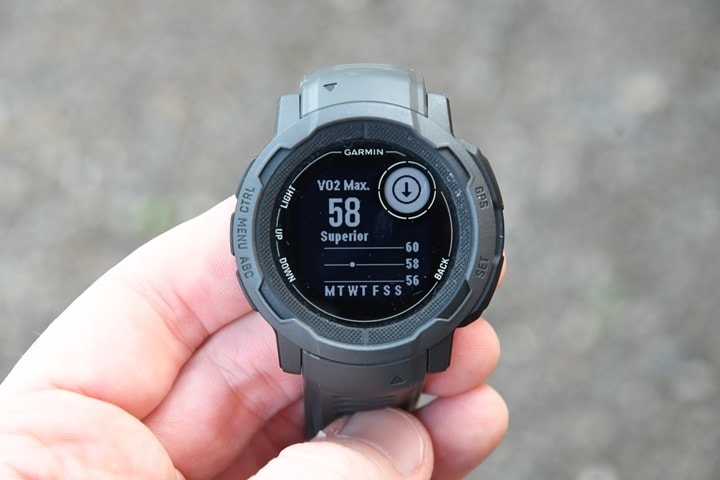
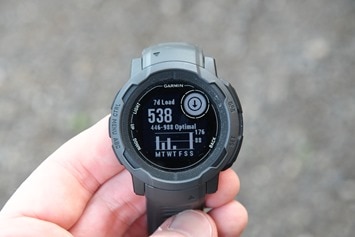
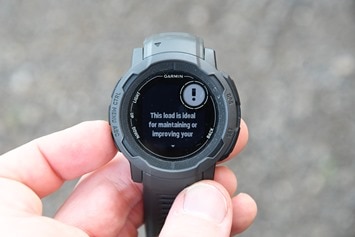
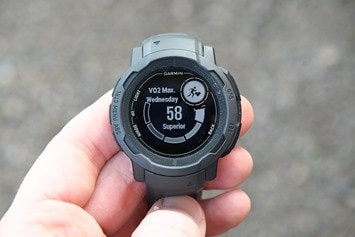
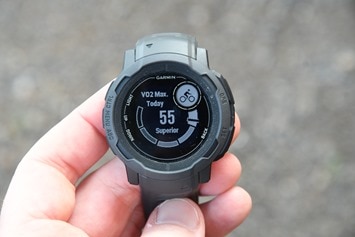
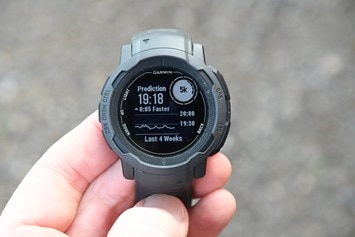
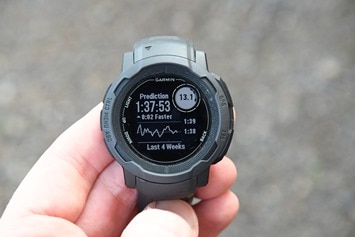
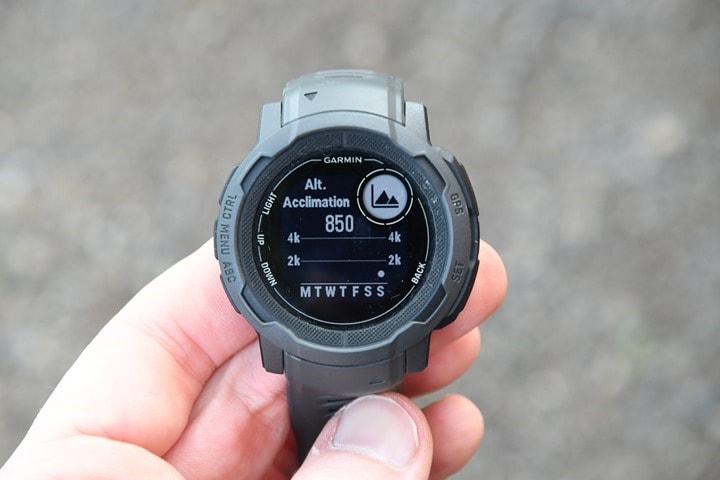
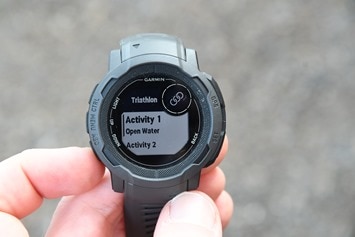
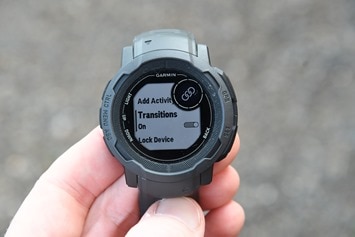
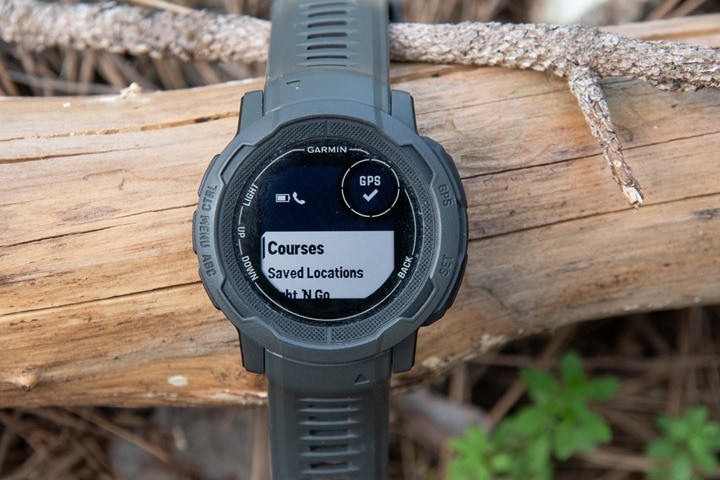
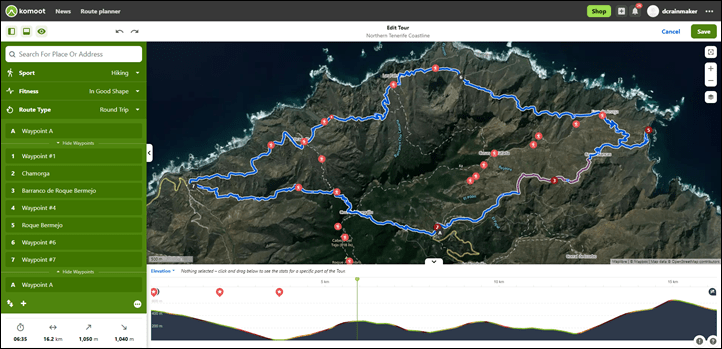
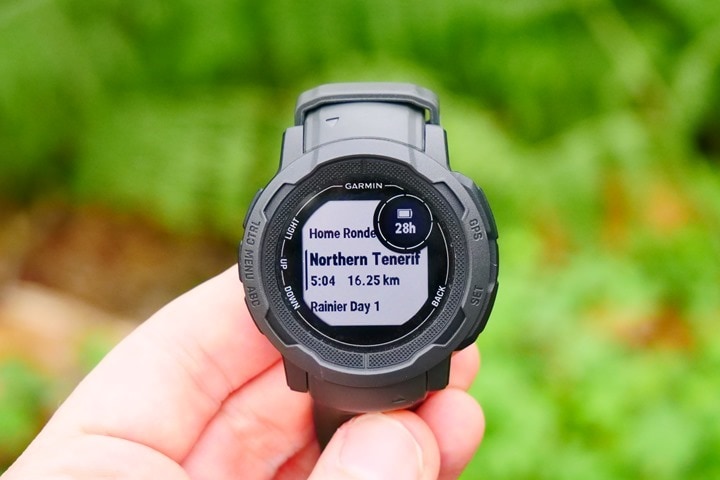
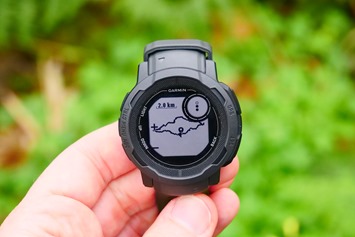
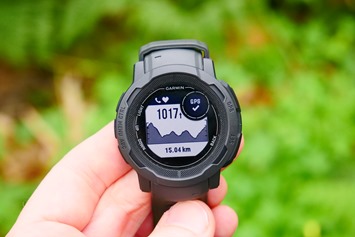
![clip_image001[6] clip_image001[6]](https://media.dcrainmaker.com/images/2022/02/clip_image0016_thumb-1.jpg)
![clip_image001[8] clip_image001[8]](https://media.dcrainmaker.com/images/2022/02/clip_image0018_thumb-1.jpg)
![clip_image001[10] clip_image001[10]](https://media.dcrainmaker.com/images/2022/02/clip_image00110_thumb-1.jpg)
![clip_image001[12] clip_image001[12]](https://media.dcrainmaker.com/images/2022/02/clip_image00112_thumb-1.jpg)
![clip_image001[14] clip_image001[14]](https://media.dcrainmaker.com/images/2022/02/clip_image00114_thumb-1.jpg)
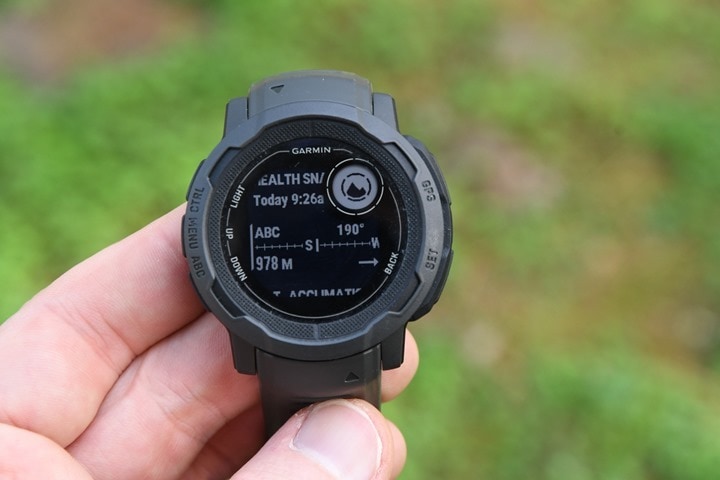
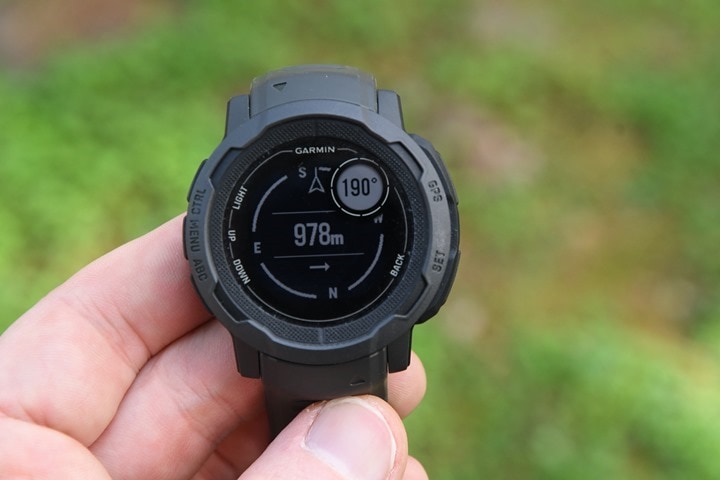
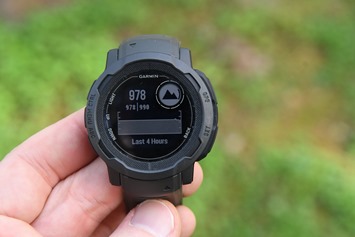
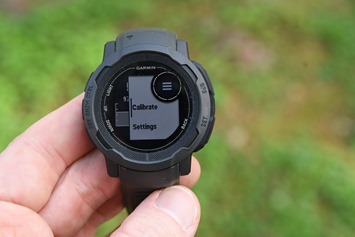
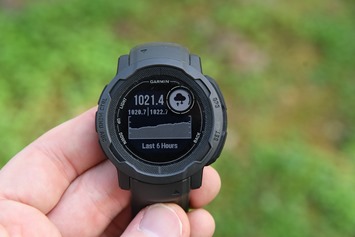
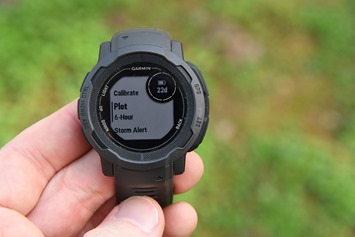
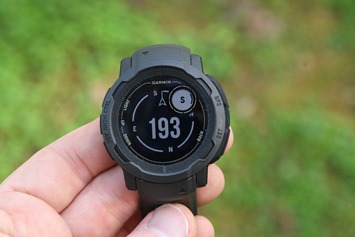
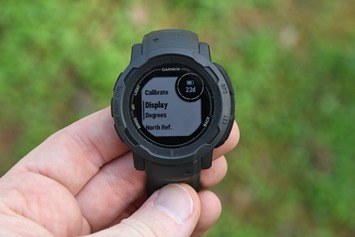
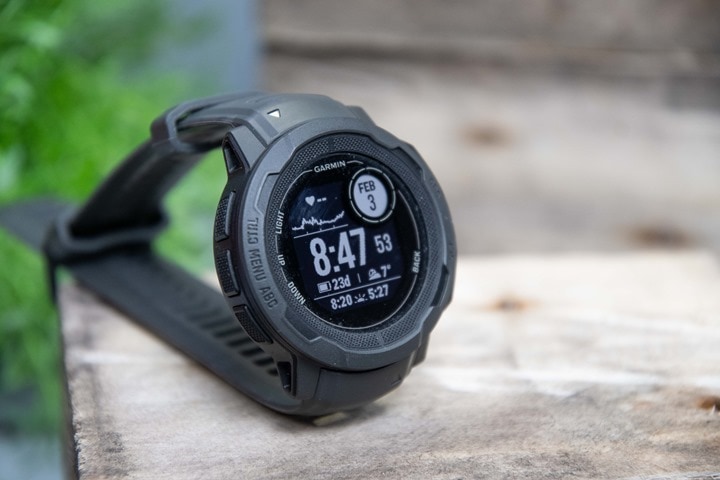

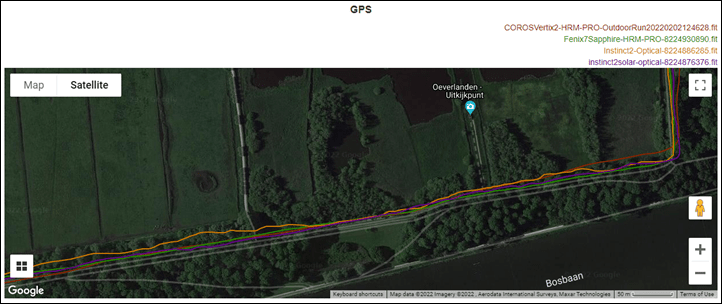

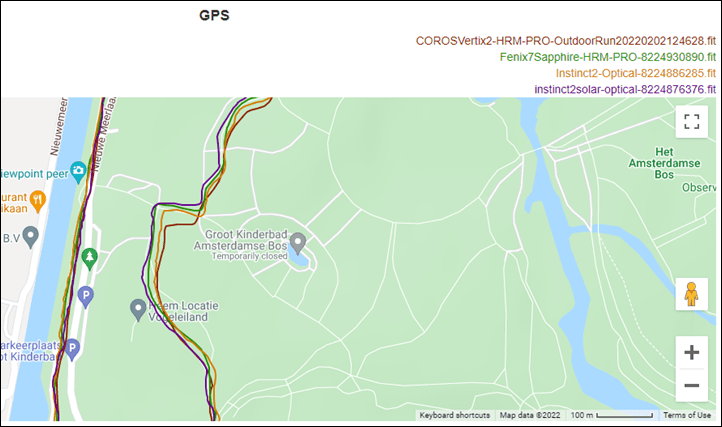


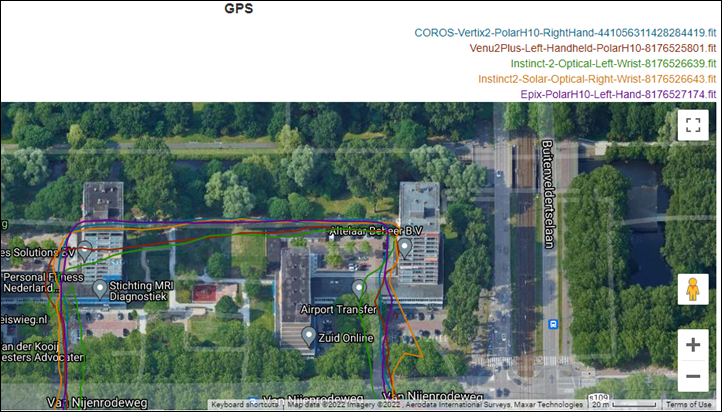

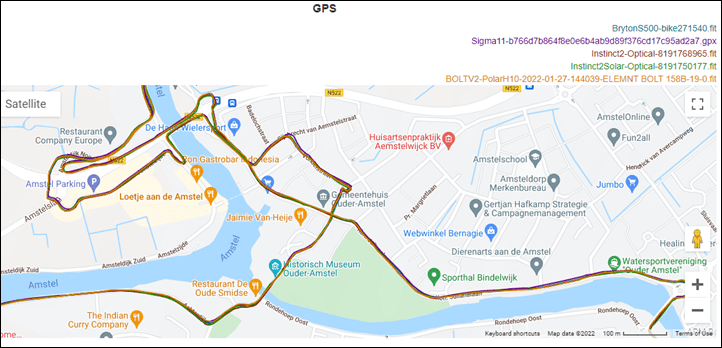
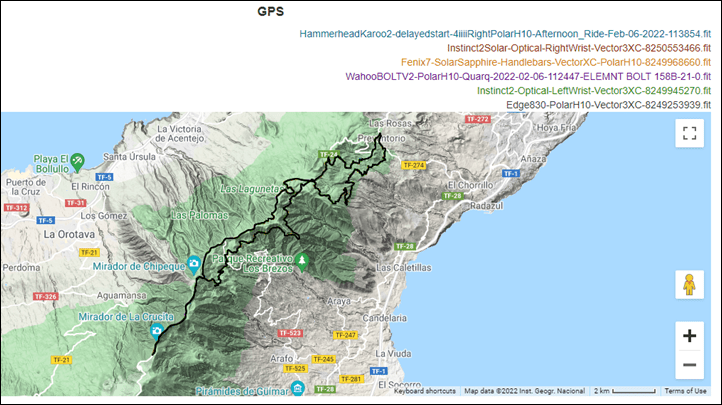
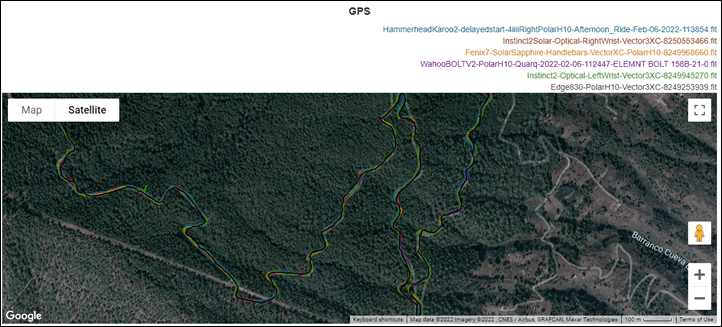

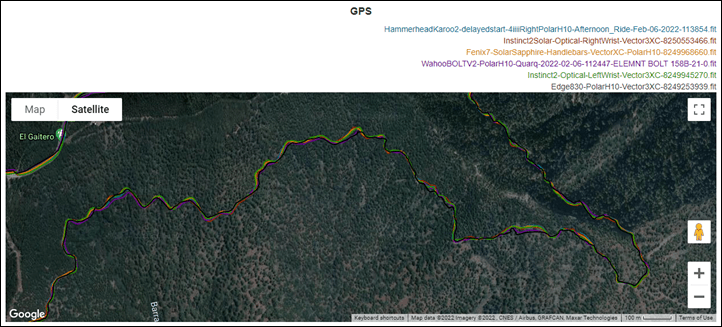
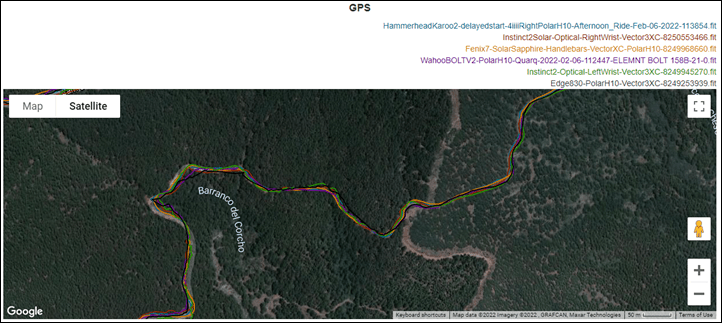

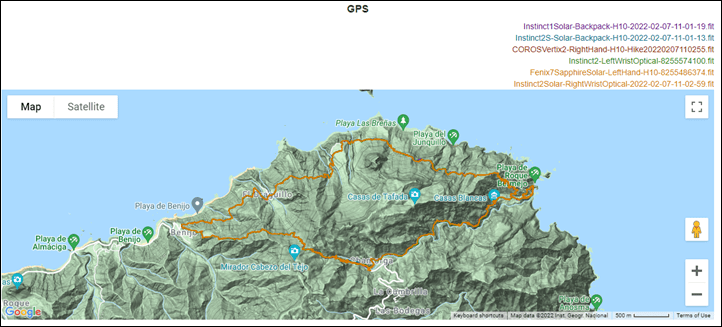
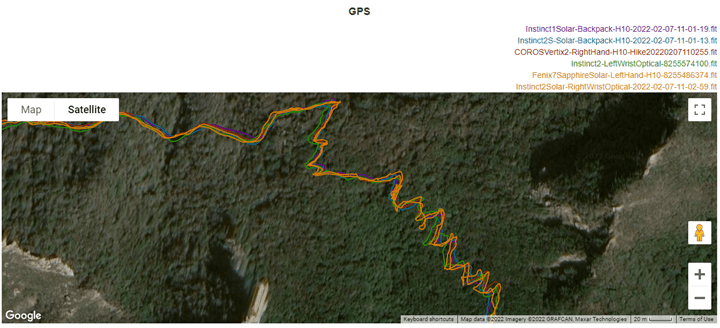
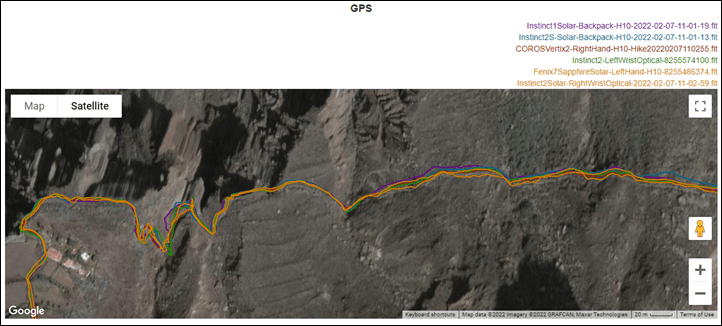
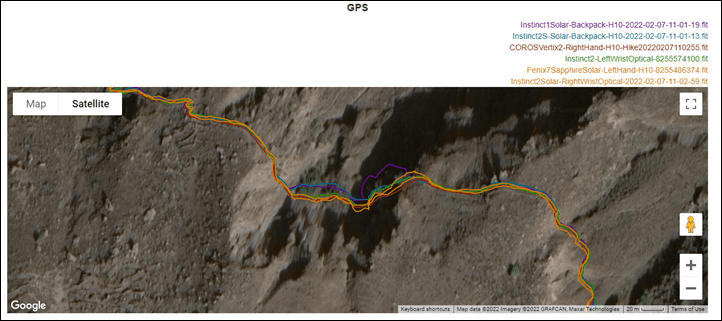

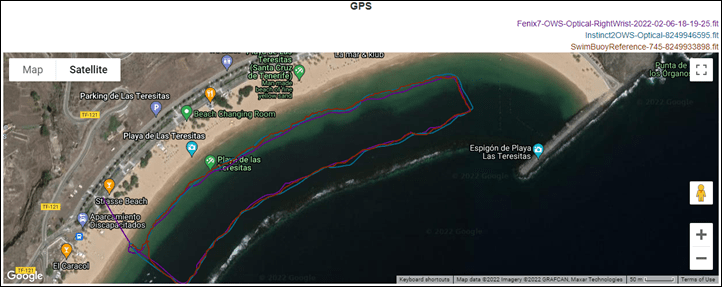
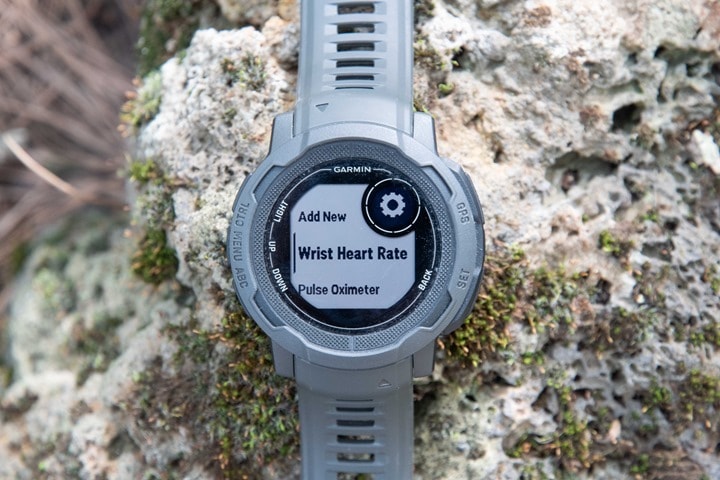









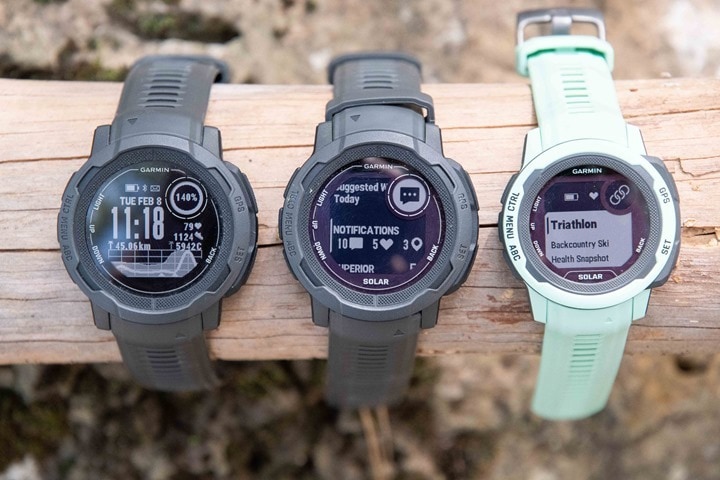
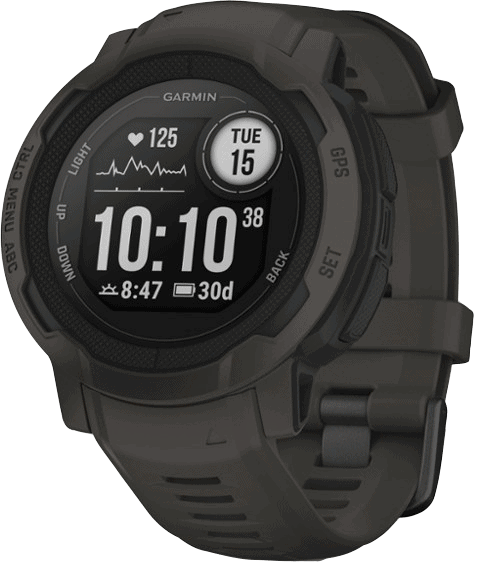
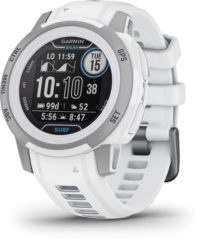
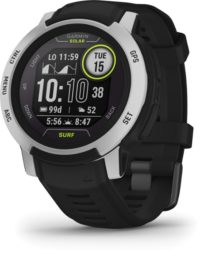
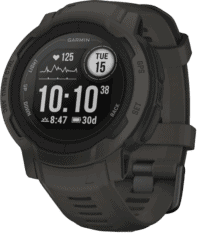
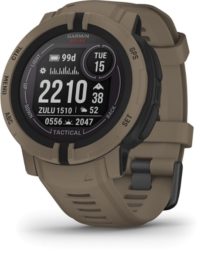
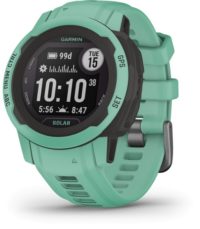
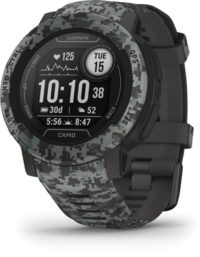
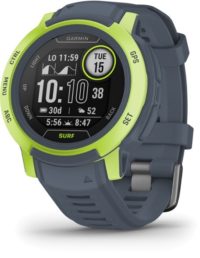
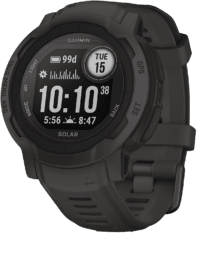
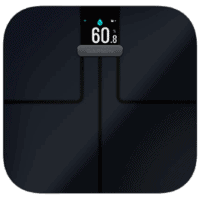
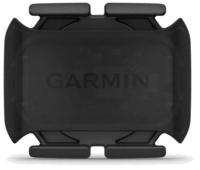
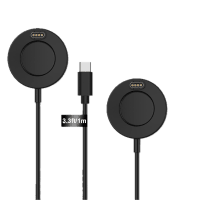

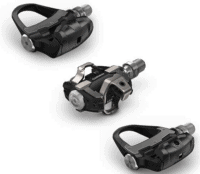
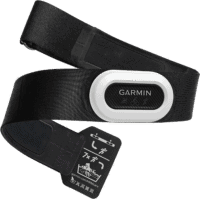
















Oh you sneaky sneaky :) i though you are testing only new fenix on tenerife. Dit not expected instinct 2 :) So long time in hands. I wonder why the was premiere later than F7 :)
:)
Dang, I upgraded Instinct to a heavier F6 last November. Given the price, I might wait for Instinct 2 and got almost same features (running dynamics/training load) together with another vibrant case color (instead of boring black).
Ok, i see there is one more difference from F7. No stamina.
Yea, lots of differences. Coming up in a full post/video tomorrow. But from a data field standpoint, lack of Stamina and ClimbPro are probably some of the bigger ones.
> I asked Garmin what the deal there was, and they said that they didn’t see the core audience of this watch as being performance-focused as other units. Which is fine, except then I’d argue – why bother adding all those aforementioned features if that’s not the audience?
It’s all fine but even on performance-focused units (Fenix / Forerunner) there’s exactly one stock watchface with training load / training focus. And it’s hardwired there – you can’t add data to any other stock watchface nor you can see it in ConnectIQ ones. Same goes for Body Battery which can only be seen as a widget.
Yup, I agree. It’s literally the singular reason why I keep going back to the FR745.
DC, I thought a new version of Connect IQ was coming that would allow all of these interesting fields (body battery, recovery time etc) to be added to Connect IQ watch faces. Is that still coming – do you know when? Or did I misunderstand – maybe it will only be for newer watches?
Hi Ray,
just after reading the specs and looking at the watch I have a question – doesn’t this watch effectively kill Forerunner 745? 945 is still slightly better (because music and maps), but 745 can’t offer anything that’s not on Instinct 2.
I think design/style is a big part of the Instinct series. For example, it’s just not my cup of tea as a style choice. But I think feature-wise it’s incredible.
In terms of the FR745, I also prefer the ClimbPro option, and music of course is there (though, I hardly use it that way). But yeah, I’ve gotta believe this sets the stage for something like-priced that’s not so Casio looking. Or at least, I hope so.
“I think design/style is a big part of the Instinct series.”
This is pretty much why I went Fenix over Instinct. Put Instinct internals in a Fenix case and I’d be all over it. My willingness to pay for unreadable maps, music capabilities I’ll never use, and a pickleball activity is essentially zero, but I don’t want to spend $600 on something I can’t wear with a collared shirt and leather shoes,
I was interested in battery life from the solar. Did I miss it or did you forget to add it?
Neither – I’m just putting those finishing touches on the charts right now, while concurrently getting kicked out of the hotel room after already being an hour behind. So…hang tight, should be up shortly (and entire section on solar/battery life, etc…).
Sorry!
If I’m reading the chart correctly, looks like solar battery life with GPS is actually less than the Fenix 7/7x solar, as long as you’re not using multiband on the Fenix 7x. Big if true?
My epix 2 did the same reset, 4x during a trail run and even ended the gpx a km early and left me without navigation. Luckily the reboot just showed the logo booted and asked if I wanted to resume workout (3 of 4 times I was using the navigation without touchscreen activated). So curious which Watch do you now use as your daily driver?
Yeah, I haven’t quite decided what watch I’ll “go back to” yet. Still got a few more days of things I want to write/post/etc about with this unit, then I’ll decide.
I’d say it’s gonna be either FR745 or Epix.
Curious as to why the 745 over 945LTE?
I know you may not need the LTE aspect for most of your uses (if any) but otherwise it’s a super-set in every way while being the same size? Maybe just a few built-in watch faces?
Said another way: what does the 745 offer that the 945LTE does not?
Yesterday Garmin released a FW 7.24 which is supposed to address the resets. It is just starting to roll out.
The review I’ve been waiting for, thank you!
Has the location of the altimeter-hole changed? It looks like that on one of the pictures… That’s the most irritating behavior of my current Instinct, that everything altimeter-related is basically crap…
The section about the new HR-sensor doesn’t mention it: is the backside of the sensor now glass or still plastic?
Plastic as far as I know.
Thanks! I got the question answered on a German site as well: link to golem.de
Really hard to decide. Feature-wise are (for me) only these features from the Fenix 7x important:
* glass cover for OHR (got a rash from time to time and needed to switch sides/wear the watch loose)
* maps
* flashlight
Everything else the instinct 2 has as well (+ better battery life).
Hi Ray,
Thanks for the great review as always.
I just want to kindly notify you that your heart rate section may have a typo, confusing the instinct with the fenix.
Otherwise it’s great!
I really hope they include a future firmware update on the max course point limitation for the fenix series. I run into this all of the time while running trail ultras. The recommendation I found on the forums is to make multiple smaller activities out of the big one. Seems like this shouldn’t be an issue in 2022.
Disappointing to hear about the watch system crashes. That is 100% what makes their Edge units unusable, including the flagship Edge 1030 Plus. There’s something seriously wrong with the software quality control at Garmin lately in the Edge team, and it’s really sad to see it showing up now on the Instinct 2.
My 530 has been rock steady since I got it last year. My Fenix 5, however…
My Edge 1030 Plus has never crashed.
Yeah, I’ve had zero issues with any of the Edge devices in years.
And obviously, a large chunk of my Instinct testing experience was on beta software, so crashes are expected. However, for my criticism here, I’m really just focusing on the last *few days* of issues – since many previous issues are resolved (which, is the point of beta software).
But, if you were to buy an Instinct today, you’d be on the same firmware as I’ve been on for the last 4-5 days.
One issue with Garmin is the devices are software differentiated, not hardware. As consumers we are used to buying devices based on the hardware capability, which may in turn limit software capability as a result, but we don’t expect devices to be artificially software crippled or differentiated. If you buy a new Android or iOS phone, you expect it to do all the smartphone things you can normally do regardless if you spent $200 or $1000. Garmin needs to have a basic service set that all their watches support in a given version of firmware (I don’t even know what to call Garmin OS which is a related problem). Philosophically smart watches aren’t about bespoke watches, its about a unified mobile platform, and any customization should be enabled from that. I see this new Garmin Instinct 2 hopefully as a step in the right direction with adding connect IQ support, but having custom “surf” and “tactical” editions with special software features is a bit antithetical to that philosophy.
> we don’t expect devices to be artificially software crippled or differentiated
We ought to expect it though. Software development is expensive, probably as or more expensive than the hardware. It’s perfectly reasonable for a company to limit access to that software to higher-end models.
I have no issue with people charging for software, it’s one reason I like the connectIQ store and think they could improve how paid apps work. If Garmin wants to sell a software feature they should make an app or possibly software subscription that enables that feature. Selling one type of watch that has some unique software feature seems like a bad business idea and anachronistic akin to a software dongle and just makes and confusing and inflexible for a consumer. Sometimes they even have software features available on cheaper consumer watches that aren’t on the high end $1K watch! I am an active connect IQ developer and read ever DC Rainmaker article tip to tail and even I find the Garmin lineup super confusing. Just open the Connect IQ SDK manager and scroll through all the devices and figuring out if some API or feature is supposed on some particular device gets confusing as a developer.
Very true. I only disagree about subscription, that would likely be the end of my relationship with Garmin.
Wonderful review. I have got a question regarding instinct 2 series. My instinct 2 solar tactical seems to be counting my steps even while driving. I tried looking up a solution and on other watches including the original instinct there’s an option to temporarily stop activity tracking. But I can’t find it on my watch. Can anyone confirm if it’s not available on instinct 2 or am doing something wrong?
Hi,
Have you ever tested incident detection and what do you think about it?
Brg, Alem
I see that you can download maps to the Venu2 etc so can you do that for the Instinct 2 as well? If so are they usable given that they are in monochrome?
Thanks for the great reviews. Si if I can get a Fenix 6 pro for £360 or the Instinct 2 solar for £300, which would you go for? How better is the pulse meter on the Instinct over the Fenix?
Cheers
Gosh, the software differentiation is frustrating, although when you’re the leader, I guess you can afford to do so.
I could see this watch as the best choice for a long distance hiker. Plus it’s half the price of the enduro, and arguably has more features. I have a feeling the enduro will be forgotten about quickly.
I just wonder what % of updates my F6 pro will get until it joins askjeeves in updateless company heaven
Thanks for the review. I hope that you will post an update if/when the firmware stabilizes.
I just bought the new Epix 2 (Receiving it Friday). Is the Epix worth the more than double the price of the Instinct 2? idk.
Tough one for sure! I’d say it goes down to your preference of looks and weight. You probably won’t combine the Instinct with a suit while the Epix even having an Amoled touch screen is making some folks cringe inside. Garmin serves both, the sleek devils.
As always, thanks for the incredible review Ray!
This is a small, insignificant question, but if anyone might know the answer, it’s you! I love my Instinct Solar 1. It’s less than a year old. My one gripe with it (and the non-solar I returned and exchanged due to a wonky HR sensor) is the lack of the backcountry skiing sport profile. For an “adventure” watch, it seems strange that that is left out, but indoor rowing is included…
I had always assumed if I wanted backcountry skiing, I’d need to get a Fenix. Now with the launch of the Instinct 2, that’s not true. Any idea whether some of those new sport profiles may get released for the first gen Instinct? Doesn’t seem like backcountry skiing needs any of the new features…?
Thanks!
Have they moved the position of the hole for the barometer sensor? As heard that used to be very close to skin and often get clogged?
It seems so, yes. According to link to youtube.com it really improved altimeter/barometer readings.
Nothing will be added to 1st gen Instinct Solar either? Seriously? What kind of attitude is this by Garmin? Plenty new features would remain exclusive for the Instinct 2 if they added some of them to the previous model: Vo2max, recovery time… I cannot believe this. It pissed me off.
Releases like this just make me more frustrated with the Venu like and I guess the now dead Vivoactive line. Why hold back the training load/recovery bits from those watches just artificially. They have the chance at making a great smart watch/training watch combo like what the Sunnto 7 could be with the right tweaks. Instead customers with Garmin just can’t get all of Garmin’s best features in any one watch.
Great review. I’m loving the new features and my daughter will be highly disappointed the new features are not coming down to the Instinct 1 solar. She has been very happy with that watch. By the way, I somewhat found a “Drunk February Black Friday” deal. Garmin did me a major solid in upgrading my Fenix 3HR to a 6X for $190. Not bad, Garmin, not bad.
Hi! How was that? Did the 3HR became so faulty at the end as to having it serviced or what?
I own a F5 and if I was confident that the same was going to happen to me, I absolutely would send mine as well…
Not that mine is faulty or anything (fingers crossed) but curious to know. ;)
Care to share a link to that deal?
Thx
Yes. The 3HR was having issues that appeared to be connected to a failing battery. I called Garmin and asked about battery replacement options. Garmin doesn’t replace batteries but just swaps out units with a recertified unit. When I called, they did not have my exact unit. Upon asking my options, they gave me several including the 6X sapphire at $190. They even indicated they might be willing to give 20% off a new 7x but that they would have to check. I took the 6X deal. Couldn’t pass it up.
Pingi,
Not a deal on the internet. I called Garmin when my 3HR was failing and they made the offer to replace it. Nonetheless, I’m super impressed with Garmin changing out a watch I paid $600 for in June of 2016 for a recertified 6X sapphire that new still costs between $649 and $800 today, for only $190. It’s like 5 1/2 years use of the 3HR for free. Maybe they saw the post on how good my Coros Pace 2 is or knew that I sent a crappy Venu back a year ago and decided to reel me back in. Either way, super happy with Garmin on this one.
Excellent review, thank you. I recently gave my young son my old Fenix 6X (yes, it does look absolutely massive on his wrist, haha), to replace his aging Instinct (1), but now I’m wondering if he’d be better served by the Instinct 2S. Might be a tough sell getting him to give up his color screen and full topo maps though. Also there’s certainly some value to the F6 having 2.5 years of firmware refinement under its belt, where it seems this Instinct 2 has a ways to go before it’s fully stable.
Its a bit sad they don’t include Bluetooth heartbeat streaming for Zwift :(
According to the Added features list it does include broadcasting via Bluetooth smart.
Hi DCR, so it still doesnt support the Garmin Varia?
I just want to make sure, we can make workouts in Garmin Connect and push those to this new instinct watch, right? Let’s say I want to break my PR in the 5k and would like my watch to give me the paces per Kilo to hit during the race, this new watch can now do this right?
Lastly, when you press pause during an activity does it consume a data field? Right now I like my heart rate in the circle, but if I pause my workout, I can’t read my heart rate anymore…I know I can move my heart rate to a different field, but that’s not what I want to do?
Thanks for the great reviews. I only care about battery life while recording with GPS, workout maps, and keeping the cost well below the Fenix price! I really don’t see a need for all the metrics to be pushed out to me, I don’t need music since I always have my phone, and I’ve always been a fan of the G-shock look.
Hy, very good work, like always.
I don’t find an answer about stryd compatibily
Because if it’s possible with connect integration, I will change my F6 again instinct solar 2?
Instinct 2 coming soon: link to support.stryd.com
Thanks for the nice review! I might get one of these but can’t decide on the size. It is hard to tell based on the posted pictures, as there is no reference, like shown both on the wrist. I am male with relatively small wrists (16.0cm/6.3in). My old and broken Forerunner 645 with a diameter of 42.5 was just the right size for me, so for this one I would have to either go larger or smaller. Any recommendation or maybe you could add a picture that makes the size differences more clear? Thanks!!
Just wondering if the solar charging will take place still if I switch it off and leave it under the sun while I go to work with my vivoactive.
Can the “infinite battery life” in smartwatch mode be achieved even with one short GPS activity (30-60 mins) every day? If yes, that’d be a game changer.
Garmin is currently selling the Fenix 6 for $319. Would you recommend the instinct or the 6 at that price?
Where can you find the Fenix 6 for $319??
Current Coros Pace 2 user, looking to upgrade since I’ve become a skiing fanatic lately. My other peeve is the timer alert in bike mode only goes down to 15 minutes. I prefer a 10 minute alert for nutrition intake. Does the Instinct 2 have the option to alert in 10 minute increments while in Bike mode?
Just looked, you can set a repeating timer down to as little as every 1 second, if you want to. Allow any time in hours:minutes:seconds.
Does the watch support heart rate bluetooth broadcasting? (for zwift!)
As per their website Tech Specs only by ANT+ so I guess you’ll need chest strap?
The Added features list says it supports heart rate broadcasting via Bluetooth Smart.
Correct, it supports dual ANT+ & Bluetooth HR broadcasting. Ignoring Garmin’s own spec site (as one usually should), I actually included a screenshot of it broadcasting my HR in Zwift using Bluetooth to my iPhone. :)
Hi
I can broadcast heart rate to zwift when virtual run, but when in the cycling mode, zwift cannot find the heart rate broadcasting from the Instinct 2. I am using iPhone.
How to set up a connection in this setting? thanks.
With the outdoor oriented watches like this one or the Fenix series, is it now possible to transfer activity data to Garmin Connect on the phone without having an internet connection? It has not been possible on the FR645 that I had, and for me it is almost a no buy reason. I am regularly on vacation or backpacking where there is no cell phone service, and not being able to transfer and review my activity at the end of the day on my phone is making me really angry. Not to mention that I might run out of storage on the watch. Strangely, I have never seen this mentioned as a negative in reviews. Am I the only one bothered by this?
Great question! I have the same problem with my VA3.
Can’t see the reason for it, watch syncs over BT … Connect can sync to servers later when I get an internet connection again.
Does this not work via Bluetooth?
You’ll need the Garmin Explore app to transfer data w/o cell coverage. But the Instinct 2 does support that app.
Ray,
When you do the full review can you cover if the connect store allows you to download the sport specific features of the different watches. IE if you buy the tactical version can you download the Tide app like you can for the Fenix? Would seem silly to not be able to but would also make sense as the various units sell at different prices.
After transitioning from Android to iPhone I noticed that myself and others had issues receiving notifications on the watch with the new phone. Do you know if Garmin fixed this issue with Apple products?
That’s an Apple issue more than it’s a Garmin one.
It actually has to do with Apple, not Garmin. Apple wants their phone users to get their watch, which is why it’s not compatible with others, such as Garmin, samsung, polar, etc…
I might be the only one with this experience but my FR645 handles notifications from my iPhone far better than my AW5. The FR notifies me every time, and the phone pings; on the AW they seem to disappear into a void, there will sometimes be a screen notification but mostly all I am aware of is a little red dot at the top of the screen.
Did the original instinct have an elevate v1 or v2?
Wow, this is currently Garmin’s best full fledged 40mm watch for the small wrist folks. Hey DCR can you compare the instinct 2s to the Fenix 7s would love to see a comparison like that. Maybe use your wife’s wrist.
Looks like they are sold out now, they were that price on Garmin website yesterday
Thank you for the fantastic review.
Can you tell me what languages preloaded?
Because, Fenix 7 supports Asian language by default, such as Korean.
I wonder Instinct 2 supports Korean language by default.
Sorry for my bad English.
With the other Garmin watches such as the Vivoactive 4S I have you can add the surf tracking and Surfline apps through the IQ app store, is this possible on the standard watch or do you have to pay $50 extra for that privilege?
I just checked, using the Instinct 2 base, I was able to search within the Connect IQ store ap and it shows it as compatible/available to install. :)
Good news, thanks for that :)
Hi DC,
Thanks for all the videos and reviews. I’m in the market for a new instinct (ideally Solar 2s), and surf tracking is a must. Can you confirm the surf tracking app you can add to the non-surf editions, is the Garmin one and not the 3rd party one?
I currently have a forerunner 245 which supports a surf tracking app, but it’s not the native Garmin surf activity tracker, hence the need for the upgrade!
Really looking forward to your response.
Yes, for the Surfline app (which is made/published by Garmin) – but just to clarify, not any other apps beyond that. Meaning, you can’t add the native surf capabilities, just the Surline which shows you wave/surf conditions but not tracking.
Sorry if that wasn’t clear above.
No problem sir 😊
Once again thank you so much for your in-depth reviews and your response!
They really do help a ton!
Hello again!
I have a follow-up question. I want to buy the 2s Solar Surf edition as I have smaller wrists, but the full white body is a deal-breaker for me. Do you think Garmin will come up with other colors for that model? If not, could I see some comparison pictures between a 2s and a 2?
Should I pull the trigger on the larger one? I’m really conflicted.
Finally, some pictures of a full white body 2/2s with black straps could possibly help my conundrum if you have any of those variants lying around.
There is one omission in terms of new features that I was particularly missing in the previous model: the addition of programmable hotkey combination for fast access to most- used features like stopwatches and alarms.
Thank you for the great article, how is steps tracker accuracy and alarm sound volume on this watch ? I am currently sporting a samsung galaxy watch and am trying move out of the smartwaches with 2-3 days battery life and move into the solar smart watch. I had my eyes on casio but the sound of the alarm is very minimal for me ,which is expected considering their watches are very rugged and designed to be protected from all forms of possible damage. I heard in solar instinct 1 there were several steps more than the real steps taken. Have they improved accuracy on that ?
Hi! I am looking forward to your comming Instinct vs Fenix 7 rewiev, but I think a comparision between Instinct 2 and Fenix 6 Base and Garmin Enduro would be even more interesting, since they seems to take up the same nische.
Great review, as always!
My one question to you though is, do you think there is a chance they add music to Instinct in the future editions or not? Its appeal and part of marketing is long lasting battery but adding music would cut that big time. But anyways, what do you think?
Hi Ray,
I would like to ask you your opinion about the display if it looks better than the fenix, or how is its visibility in general?
You think it could be a good choice for training and outdoor training activity respect fenix or not? Big limitation or what you didn’t like rispect fenix other then maps, stamina, Climbpro, music ?
I prefer a light and small watch for activities, for the size you have worn them all :) which one did you wear better between the instinct 2 and the instinct 2s, and then compared to the fenix 7s?
thanks!!
I had it and returned it back. It has poor display visibility at night with backlight on due to (probably) wrong placement of display filter or something like that. It is very hard to easily read the screen when glancing at it under these conditions. If one were to wear the watch from the other side of the wrist (i.e. the wrist bottom) then the display is as it should be (because the angle is changed 180 degrees). I contacted Garmin support about the issue but they responded with “it is by design”. I returned it back, of course. Garmin forums have several threads regarding this issue. I would advise to stay away from it until they correct this issue in future batches but it is shame they refuse to acknowledge (probable) error.
I’m only aware of a single thread regarding specifically the Instinct 2 Tactical edition, where someone is saying that.
And I’ll be honest, I just don’t see the issue here. I just went into a closet to test it, set it to 100% brightness, and it’s perfectly visible at both the 100% backlight, and the default 20% backlight, on all angles. It’s more overly bright from one direction than the other, but even if I put the watch upside-down, or inverted, or whatever, it’s still visible, even with my wrist almost precisely 90* offset from my vision line (so, fully twisted).
I agree it does appear that viewing from one direction (top-side) off-hangle is slightly more clear at full brightness than viewing off-angle from the bottom side. But neither in the three months of having this watch has ever occurred to me. And given that we’re almost three weeks since the announcement/release, and it’s basically just a single Garmin forum thread with what seems to be just three real-world people that have watches, and a boatload of chatter from people that don’t have watches circling about said two people.
Just my two cents…
As for Paulo’s question – in general, if you compare screens, I actually find the Instinct screen more clear than the Fenix 7 Sapphire solar screen. Whereas the Fenix 7 non-Solar screen is larger, and thus more easy to view, but seemingly a wash on visibility.
Unfortunately, I don’t think so.
Here is my (now sold) GI2 Solar (not Tactical) from two angles. It seems someone in the production swapped the polarization filter and then quality control slept over.
Hi, great review. One question though: does the back button work as lap button? When i tried the first instinct it did not.
On the Page 8 in Owner’s Manual you can read this about the Back/SET button:
“Press SET to record laps, start a new set or pose, or advance to the next workout step.”
Thanks for looking this up. Haven’t thought of that.
Great work Ray !
Please add Garmin Instinct 2/2S/Solar to Product Comparison Database
If you get the chance could you please ask Garmin why they are opposed to adding a Rucking (hiking with heavy backpack) sport profile?
Their “the change in HR reflects the pack weight” does not give correct load values according to several studies.
Same with the sometimes mentioned adding the pack weight to user weight in settings.
As a multi-week hiker with 25 kg backpack it’s annoying that a brand new Garmin smartwatch can’t give me a proper estimate of energy spent.
So as a last ditch effort I hope you might be able to ask someone in power, instead of the standard responses I get from Garmin support 😇
I am also baffled that there is no sport profile for hiking with a heavy backpack for Instinct and Fenix that are labelled by Garmin as adventure watches. What is the point of endless battery life with solar if typical activities that take several days/weeks are not supported.
It seems there is also no other app in the IQ store that has that capability.
I wouldn’t be surprised to see something like that added down the road. There’s been some discussions around backpack weight and such (which is why the VO2max toggle now exists actually for the trail/ultra running profiles). Of course, that basically just exempts those workouts from impacting metrics, as opposed to accounting for it.
Sounds good!
With the large numbers of sport profiles not having one for backpack hiking is very odd IMHO.
Yeah agreed
Can the watch be charged only by laying, say a day or so, in the bright sun? That would be a killer feature.
I’ve got the same question. Does the battery percentage actually go up, if you’re in really a lot of sun for many hours?
Yup, it actually does. I did some fun tests with this in a never-got-around-to-being-published post/video from this both two summers ago and this past summer.
I got the battery from dead-dead all the way up to like 40% or so after two days of being attached to a chair in the garden in the sun. :)
Thats awesome news.
Hello! So I originally had gotten the Venu 2s, but had to return it due to a faulty battery. I have now gotten myself the Venu 2 Plus, mainly for the fact that when I lose the watch, it makes a sound to find it(the venu 2s just vibrated!) and that made it worth the upgraded charge. I always wanted the Instinct because I love that it’s rugged and kind of reminds me of the watches I used to wear when I was a teenager! I love that 2 has the smaller size included! I am currently trying to decide if I want to exchange my Venu 2 plus for this new Instinct 2, but am having a hard time deciding which is best for me! Any help would be great. I don’t mind that it’s not a touch screen or that it’s display is different. I just want something amazing and worth the money. I am a avid yogi and I occasionally run/indoor bike.
I think it depends a bit on how much you value the non-sports aspects (e.g. music), or some of the more colorful widgets/etc. The Venu 2 is really good in those areas, which the Instinct lacks entirely.
The other thing is that the Venu 2 does have the pre-canned yoga workouts (with movements), but if you’re avid/experianced, it’s unlikely you’d be using those workouts anyway, in which case the standard yoga sport profile would cover you.
At this rate of feature drip down – the Forerunner 255 is going to be the sweet spot bench mark for another 4 years. OLED, buttons+touchscreen, maps and 21 day battery.
Will it ever arrive? And… link to techradar.com
I think they’re words just to fill the internet that day.
Definitely a place for a forerunner with a Venu-esque screen and physical buttons. I imagine that 6-8 hours GPS time and 7 days smartwatch is good enough for the majority of forerunner users.
I agree with Yamalink. Garmin needs to kill some of their product lines. Way to much overlap and confusion. Between the Instinct 2 and Venu2, Garmin should kill the 55, 245, and 745. That said a 955 is due and probably still has a place as a plastic, light, Fenix alternative especially for the tri group.
It’s funny, a strong part of me agrees that there’s far too many models, let alone model variants. A very very very very very strong part of me.
But, at the same time, it’s virtually impossible to have such a conversation when each successive quarter/year Garmin posts higher and higher revenues and profits based on such a strategy.
Of course, one can try and argue that some consumers give up and buy something else. And I think that was probably valid 3-4 years ago, but as other competitors have faded, that conversation component really only happens if talking a comparison to Apple or Samsung or such where someone just throws their hands up and goes an entirely different direction.
Ok – let’s amalgamate your proposed kill list and combine it with my new feature list. And we’ll settle on the Garmin 555. (Available in one size and one colour only!).
Sorry, I completely disagree. Yes, too many models can be confusing. But the Forerunner lineup is quite clear:
55: Cheapest, entry-level. Very limited feature set.
245M: Mid-price. A very nice feature set, but some “premium” things missing like premium metrics, Garmin Pay, offline-HR, etc.
945/955: High price. Full feature set.
Fenix: Premium price. Full features + premium casing.
The only thing that is kind of unnecessary is the 745.
If you remove the 55, an entry level Forerunner watch is missing. Not everyone can afford a 945…
Same for the 245M. The 245M has been the killer watch for the last 3 years. Really good price, awesome feature set, and it received so many updates. I would not be surprised if the 245M is one of Garmin’s best-selling models. Many people I know got a 245M, and for many, it was their first Garmin watch, and they all absolutely love it. None of them would have gotten a 945, because it would’ve been way above their price point.
> Will it ever arrive? And… link to techradar.com
This article is also bullshit, sorry.
The FR 55 only has the most basic training metrics. It doesn’t have music or breadcrumb maps.
The 245 has many more training metrics, music, and breadcrumb maps, many more activity profiles, and I’m sure I forgot a ton of stuff. Saying that the 55 has everything except for music, is just bullcrap.
One feature I’d really like to see in the 2022 mid-price lineup (255, or whatever it will be) is Garmin Pay – please, that should not be a premium feature in today’s contactless payment world.
Swimming + Open water Swimming + Multisport Activities.
Unless I missed an update, these are always left off of the 2xx watches forcing one to a 7xx, 9xx or Fenix (or Instinct 2, now).
I like a lower priced option, although an Instinct (non-solar) may be roughly on par feature-wise with a Coros Pace 2 (comparing multi-sport needs) and is still almost 2x in price. I feel like I personally would only go Instinct if I went +Solar for the battery life enhancements.
Personally I’m still waiting for a multisport + solar + LTE watch (maybe a 955 or Fenix 7+?). I’d love it to also have AMOLED but key need is real 2 weeks+ smartwatch mode and ability to do Full IM distances on a charge (with LTE active at some update rate, possibly reduced). The 945LTE is close, but feels possibly a little short on battery and possibly forgotten by Garmin already.
Any idea if the pins are removable?
Yup, totally removable. You can see it in the ‘The Basics’ section I have a picture of them removed.
Sweet, thanks!
Instinct would make a perfect sport watch for me, but for daily use I would still use my light and small Versa 3 with nice screen. But I really hate Fitibt for sports, I mean no altitude data during hiking WTF.
I really am not fond of changing watches, but if that is what it takes, then Instinct 2 seems like the perfect offer for this. But is this really the intended use case for Instinct? To be “only” a sports watch? Do people intend to wear this watch 24/7? Thoughts?
I think the Instinct is meant as a 24/7 watch. Quite sufficient battery for that, not as bulky as the Fenix 7X (and arguably somewhat less bulky than Fenix 7). It might not fit perfectly into every environment but it’s casual enough to not cause a disturbance anywhere…
IMHO the Versa lineup is more “flashy” (colorful) and more elegant. But it’s definitely less versatile than the Instinct (even the first version). And of course the Instinct (also the first version) is way more robust…
I wear mine except to sleep. I like the chunky design, just not in bed. Lots of men wear bigger watches, G-Shock, etc and that’s what I was going for. I did get this only for running but ended up liking the HR stats, steps, etc. YMMV
“And as regular readers know, if something is crap, I’m gonna tell it brutally like it is – no matter the brand.”
Sorry, Ray, I like your reviews very much, but as a regular reader, I’m not sure this is an accurate portrayal of your process. For instance, what happened with the Garmin Epix 1 in-depth review back when the Epix 1 came out? From a number of comment discussions around the time it was clear you have been thoroughly testing the unit, and also that you kind of thought it was crap. Wasn’t it the case that you never published the review because in it you would have needed to say too many negative things, which then could have had the potential to sour your relationship with the Garmin folks? It’s of course OK to not to go down willingly on this path, but to say then that “if something is crap, I’m gonna tell it brutally like it is” smells a bit complacent..
But again, apologies for being a bit rude in calling you out on this. I do read your reviews every time before buying something you’ve reviewed, because they are indeed very balanced and thorough.
Sigh, I really don’t understand comments like this. Seriously, it’s mind-boggling.
Look, it’s just me writing these reviews. That’s it. There’s no secret troll toiling away writing 11,000 word reviews at the same time as shooting video reviews that take twice that in time. It’s me. It’s me who gets 3 hours of sleep to get a review out roughly on-time, to then answer questions the rest of the day of a product launch (good or bad).
And that’s just as true now as it was in 2015 when the original Epix came out. I don’t pick and choose whether to write a review based on whether a product is good. One only need to look at all the products I don’t get around to writing/finishing a review to see that. Let’s see, these last few months that’d include well done/good products like the Apple Watch Series 6, the Samsung Galaxy Watch 4, the Garmin Vivomove 3 Sport, and piles others sitting around the office. Or in the last few years super-popular products that have done well like the original Peloton Bike, the Wahoo KICKR V3, the GoPro Hero 9, and others.
And if we flash-backed to 2015, that’d include also-good but never published review products like the Garmin Vivosmart (original), the Garmin Edge 25, the Garmin Vivofit 2, and countless others.
So when I don’t publish a review, it’s 100% of the time because I’m now sidetracked with something else. I didn’t publish a Vivomove 3 Sport review 5 weeks ago because I got sidetracked getting a Venu 2 Plus review the same day, then a Fenix 7 review out, oh, and an Epix review out the same day. Then a Suunto 9 Peak review out the next day. And in between that I did two deep-dive comparison reviews between the Venu 2 Plus and Epix, and Fenix vs Fenix 7. Then an Instinct 2 review out. Plus umpteen other posts, and videos for most of those posts. And videos for things that never got posts. And time spent for things that never got published because they’ve gotten delayed till some point in the future.
So no, not everything gets a review. And it’s not because it’s good or bad. It’s because I’ve had to move onto the next thing, and no matter how hard I try to cover everything the world, I can’t. Instead, I’m sitting here at 6:43PM on a Friday night trying to cook dinner for the kids while concurrently answering a comment about why I didn’t post a review 7 years ago.
I apologize, Ray, shouldn’t have let myself post this mean comment. You are doing very valuable work for the sports community, and my post was childish and uncalled for. Sorry again for taking up your time and for stirring up your peaceful evening with this bickering. And please feel free to delete my original comment if you see fit, or keep it there together with my repeated apologies and admission for being a complete ass.
From my side you have at least 1 R-E-S-P-E-CT for your apologies.
It was pleasure to read.
:-)
Hi, the dezl version also offers garmin pay so not a solar version only
Job well done!
Please, would you show some analog faces of the watch? Those by default and someone from the Garmin store.
The analogous faces of the old model looked bad!
Hi, thanks for the great review!
In some of the shots that you show of the watch, it seems that some of the text is hidden behind both the upper right hand circular display, and likewise in the upper left side. Is that due to camera angle, or beta software or is it just how it is with the unique display layout on this watch?
Cheers!
I suspect you’re talking about ones where the text in the lower-left, upper-left, and lower-right corner is obscured. That’s due to the display design. Apps and such can put things there, though, most of Garmin’s own are smart enough not to.
Exceptions would be things like scrolling through a menu, or a long list of things, whereby you’ll see some stuff that’s not on the main portion yet displayed there. It’s honestly not something that I noticed till you mentioned it.
OK – thanks for the follow up.
Then I will just have to decide on whether this will be _too_ annoying or just annoying:-D
What about the broadcasting of the HR data – I saw another comment you made on this, but did not understand it:-) I will try to rephrase it to ease my understanding; I have a Bosch ebike with a Kiox interface/computer. My HRM-pro strap connects easily to this while my Fenix 5 does not. Does the Instinct 2 share the same broadcasting traits as the HRM pro?
Enjoy your Sunday!
Cheers
Yup, it broadcasts HR just fine, on both Bluetooth Smart and ANT+. So you can easily connect up to that. I suspect your Bosche eBike uses Bluetooth Smart, which is why it works with the HRM-PRO (which has dual as well), but not the Fenix 5 (which only broadcasts on ANT+).
So you’ll be able to broadcast to that without issue.
I always loved my Instinct 1. Unlike Ray I personally like the aesthetic. Had to give it up for a FR935 though when I took up triathlon. Since then I’ve had the FR945 and several Fenix series but always felt nostalgia for the Instinct which I gave to my son.
So yesterday my Instinct 2 Solar arrived and I’m glad to say it’s everything I’m looking for. I do use Garmin Pay (I chose my bank [Staling Bank in the UK] when I moved banks because they support it!) but I don’t use on-watch music so that’s fine by me.
I actually find the transflective display a lot easier to read with my slightly hypermetropic 53yr old eyes than the memory-in-pixel displays of the Fenix/FR series.
So far I’ve done a pool swim and a run.
No crashes for me yet and the data is exactly what I expected.
Only issue is that Strava haven’t yet added the FIT file device ID to their list so it isn’t identified on the workout summary.
Overall I would certainly recommend it to anyone who digs the Casio look. It does all you can ask for at a tremendous price. When Summer eventually comes I might even see some impact with the solar charging. Today the sun intensity hasn’t risen above 5%. It’s been a miserably wet and grey Winter in the UK.
Great article. Does the new charging port position prevent use of the 3rd party charging puck? Thanks.
Works great. I’ve been using it without problems on all the Instincts to charge them constantly.
One of the ‘smart’ things whomever it was that designed that puck did, was simply design it so that it doesn’t really matter what orientation the watch is in. Other Garmin watches have a variety of port locales, so it’s all just shrug to the charging puck.
Great review! Any chance there are any changes/improvements to email notifications on the instinct 2? On my instinct solar it only shows title/from and the first few words.
I don’t think that’s changed. Or at least, normal smart text notifications haven’t. I don’t use e-mail alerts myself, because…umm…my watch would die from exhaustion within a few hours. :)
I can confirm that the barometer/altimeter is improved a lot. The height-graph from my first ski trip with the instinct 2 solar didn’t need adjusting and was almost spot-on.
I’m very happy I switched! No crashes so far.
You should differentiate the list of what’s new to original Instinct and updated Instinct Solar. Instinct Solar already had:
– PulseOx and Swimming Heart Rate
– 30 hours GPS battery without solar
Instinct Solar is still capable and cheap watch at €225 in EU
Hi Ray
Do you know why Garmin do not enable swim personal records to be captured for Instinct range? I understand they need to differentiate products, but if the watch supports pool swimming then it seems really petty not to allow PRs to be captured.
I’m on Day 1 with the Instinct 2 Solar, coming from an Apple Watch 6. I decided to get the Instinct after reading your review! The main reason being the battery life and some of the new activity tracking features like MTB Grit and Flow.
One thing that is leaving me a little concerned though is that my heart rate was reading super low during a Zwift workout I did. I was using a Verity Sense on my bicep to officially connect to Zwift for heart rate but when I would look at my wrist to see if the Instinct 2 was matching the Verity Sense, it was consistently 40 bpm low even though I was wearing it snug on my wrist and it was a simple indoor bike workout.
I’m curious if the heart rate can just be off in that situation when the watch doesn’t have activity tracking turned on. When I would spot check my Apple Watch I the same scenario it would always match up.
Same here, do you always have to start an activity to get the heart rate up? Does it matter witch activity you choose or will any do? Is this to say that you tell the watch to add 40 in pulse because you probably had a higher pulse when you do an activity? Why is Apple gjetting thus right?
Same here. I saw a huge differences between Garmin Instinct 2 and my Wahoo tickr x chest strap. I have this value (first from Wahoo and second from Garmin): 159 vs 110 147 vs 109 153 vs 94 155 vs 146 I bought this tool to use this without my chest strap (on gym and for daily use). I’m disappointed :(
Just to be clear, if you’re not starting a workout, you won’t get good accuracy during a workout.
All watches (from every vendor), lower the power output to the optical HR sensor during day to day use, and then give it more power to deal with the more challenging aspects of tracking a workout (typically driven by movement). Thus, if you’re using it in daily watch mode to compare/track a workout, you need to switch it into one of the workout modes and start that there (the HR broadcast option does count here).
If you’re still getting inaccurate results, then you’ll want to look at fit next (ensure it’s snug, and not over/on the wrist bone). Beyond that, it could be a multitude of things, including simply that for whatever reason, that particular sport or portion of a sport isn’t working well. Strength training can be tricky, though, as you can see in the accuracy section, it is possible to get descent results.
Thank you for your reply. I am new to activity trackers.
Why is the HR value being underestimated? Because if the watch monitors this parameter throughout the day it treats changes in its value as a trend change?
Values during exercise are not comparable with those at rest?
I would like to understand better what this is justified by
No, simply because when you start exercising usually two things happen: You’re heart rate goes up, and your movements tend to go up (either things like vibrations if cycling, pounding if running, or flexing of muscles if lifting).
By increasing power (brightness of LED’s) they increase accuracy to be able to better detect bloodflow. This allows them to react faster to changes in intensity, because they can be more sure about it as their view of the situation is clearer. Versus at lower power, they have to guess a bit more as they don’t have as high quality of data. But with lower intensity, it doesn’t tend to be a big issue, as you don’t usually get huge swings.
Indoor Cycling (Zwift) setup recommendations
Hi Ray,
Like others have noted, during ZWIFT, i noticed my heart rate displayed on my Instinct 2 Solar @ 83 BPM and displaying 150+ on Zwift using an arm strap HRM at the same time. This is with my hand not moving, (stable on the handlebars) and the watch tightly strapped. I do find this strange and have noted with other activities I do, where I don’t actually start an activity, that my HR (to my memory) does track quite well. At first I thought the cause of this was some kind of interference with the other HRM or the fact I had linked Zwift and Garmin. The other thing that bugs me; even though right after a ZWIFT workout, the ride is displayed on my phone as an activity with route map and sats (including max HR), this data is not included in my Garmin connect weekly stats (example, my max HR yesterday was 165 during zwift but not logged in my weekly stats. Also, my Zwift rides are not being counted towards my weekly intensity minutes)
As a work-around I was thinking to attempt to connect Bluetooth HR broadcasting to Zwift and start ride activities on my watch. The negative to this approach (if I have Garmin linked in Zwift) is I would end up having 2 parallel activities logged. And if I unlink Garmin and Zwift, I’ll not get the route maps displayed in my summary on Garmin connect. So in summary, what is the best setup to use with Zwift considering the compromises?
Yes, broadcasting the HR will pop it into the higher power optical HR sensor mode. And in fact, you don’t even need to pair Zwift to it, you just need to toggle into that option.
It’s similar to starting an activity, except that you don’t have to discard or delete it afterwards.
Hi Ray,
I assume after my Zwift ride is over, I need to manually toggle HR broadcast off again.(save battery life)
So with this method, the elevated HR for my Zwift ride will go into my weekly stats for HR.
But will that elevated HR count towards “intensity minutes per week” in Garmin? – considering I did not start an activity with my watch? – i.e. are intensity minutes purely derived from HR (without any activity being started on the watch?
As an example, on Sunday I did Zift Ven-Top France 38.3km / 2:48 min and 1,455 Calories with max heart rate around 160. For that ride, Garmin lists intensity minutes as 16 moderate and 7 vigorous – Seems way too low. Of course Zift does have my heart rate in the ride summary (from Zift to Garmin link). ——–bottom line, will manually broadcasting my HR during Zwift rides provide an accurate intensity minutes/week – as currently I’m not meeting the weekly targets even though I am cycling at least every second day or more.
**NEW FEATRURE***Broadcast Heart Rate shortcut in rotating controls menu – I did not see this feature on my old Garmin Instinct, but the new Instinct 2 has it. I added it using Garmin Connect on my phone (Appearance / Controls / Broadcast Heartrate) – Now when I select the control button on my watch (top left), If Broadcast HR was the last the last thing I did previously, “Broadcast Heartrate” takes 3 clicks to start. ——–this compares to the old Instinct where it could take quite a few clicks to initiate. Basically the old instinct had a HR widget, but you needed to go into there to start a broadcast.
This is a great improvement
FROM THE OLD INSTINCT MANUAL
From the heart rate widget, hold MENU.
Select Heart Rate Options > Broadcast Heart Rate.
The Instinct device starts broadcasting your heart rate data
Anyone knows if it is possible to get a ZULU/universal time on watchface on non-tactical variants?
Hmm, I don’t see an obvious way to do that. If I set the time to ‘Military Time’, that simply shows it like 23:20 – but it doesn’t show UTC time (since it still shows me an hour ahead of UTC).
That said, I’m sure there is or will be a Connect IQ Watch Face that does this (probably already) – so if there is a gap, it’d be a short-lived one.
UTC time is part of standard, build-in clock widget, it is present on my non-tactical, Instinct 2 Solar variant.
Ahhh, good point, up in the corner there!
Hey Ray. Thank you for the thorough review! Just curious if you’ve seen any improvements in the software stability / crashes since your review. I like everything that I’m seeing about the features of the Instinct 2, but don’t want to pull the trigger on purchasing until the software is more stable & the watch doesn’t crash during activities.
Thank you!
Yes, it has improved. Looking at the debug (crash) folder, the last crash I had on my main unit was Feb 8th (the day prior to launch). I’ve continued to wear it 24×7, including daily workouts.
On a secondary unit (mostly used for workouts and other random stuff), I had a crash…hmm, today apparently. Not sure why, but apparently this afternoon by the looks of the crash folder. It was in my backpack all day, so not sure what upset it this afternoon. Maybe it was lonely. Just sending that off to Gamrin now.
But anyways, on the main unit, things have been mostly pretty good on the latest beta firmware.
I can now confirm that the barometric altimeter gives meaningful results! That was the main reason to switch, and maybe solar (got an Instinct 2 Solar).
While previously I needed to have the altitude of any activity (bike-commute, running, skiing) corrected, the curve now looks plausible. Not spot-on but close and not as ridiculous as before (e.g. arriving at the same spot but 100m lower, …). The automatic correction Garmin has in place leaves me unimpressed (at least here in northern Norway): while it gets the basic height correct, there are a couple of spikes in between. I got about 12 spikes of more than 700m on a trip of less than 8km. Stravas correction is way better in that regard…
So far, I only wish to be able to rename activities on the phone.
What do you mean (you wish you could) “rename activities on the phone”.
Renaming activities works on Garmin Connect mobile app since I stated using it (in 2015). You can change activity type and sport as well.
Sorry for the misunderstanding, I meant most likely sports types: during configuring of the different sports-types you can add/remove/configure them, e.g. add “Bicycle commute” (not sure about the name, though, I’m using Garmin mobile connect in a different language). I need to change the name of said “Bicycle commute” on the watch, while all other aspects of that sports type can be configured on the phone…
Battery Life – Original Instinct vs. Instinct 2 Solar (in non-solar environment)
> I just upgraded from the original instinct to Instinct 2 Solar
> My original instinct battery life was almost 2 weeks, but after a few years, was down to about a week with occasional GPS activity
> I got my new Instinct 2 Solar 12 days ago and right out of the box after fully charged and with default settings on, said 4 days for battery life. Living in Canada and with weather in my area these days, I’ve done most all of my training these days indoors (Zwift), so my new Instinct has not really seen the sun for the past 12 days.
> I’ve since charged it 2 more times and still it always says 4 days at 100% charge and that seems to be the battery life without using solar. From default settings I’ve only changed the backlight (higher, buy now very low) and turned PulseOx on.
>> So it looks like the original Instinct had a higher capacity battery and now that the solar option is there, the base battery capacity has been reduced.
>>> Can anyone confirm this?
SOLVED: Battery Life – Original Instinct vs. Instinct 2 Solar (in non-solar environment)
– Garmin support assisted me to solve the apparent 4d battery life.
CAUSE: I had PulseOx set to all day monitoring
Now with PulseOx set to manual mode, my battery life has gone from 4d to 30d
Sorry, was just about to answer this. But yes, indeed – PulseOx is by far the biggest battery burning feature you can enable on a Garmin watch (especially all-day monitoring). It’s like throwing gasoline on a fire.
I normally keep mind in manual mode, or, if I’m really curious while at high altitude – sleep-only mode.
NBD either way and I have been on your site long enough to map it out.. But that being said.. Any chances Instinct 2 (and/or 2 Solar ones) will make it up on your comparison database tool/website? I am not seeing it there and wanted to suggest someone update their ancient Forerunner.
Umm…huh. Doh.
Adding it to tonights to-do list!
Hey Ray, did you get a chance to do this? I can’t seem to see the Instinct 2 on the comparison database? Thanks!
I can’t tell from your photos, but is there a reasonable significant gap between the screen and the bezel i.e. enough to slip some paper far under? Mine has quite a gap and seems to be a great way to collect dirt! Otherwise, great watch for the price.
Mine does too, I just noticed now that you posted. I know many people also hate that sandpaper-like texture of the bezel. For me it tears up my microfiber cloth when wiping the screen which is irritating.
Other than the bezel issues I love the watch so far.
That’s normal. Though, I haven’t had any issues with it (the gap) despite plenty of openwater swimming, mud, etc…
Does anyone know what “Smartwatch” means in the table regarding battery life?
There is no profile called “Smartwatch”. I wonder which settings need to be chosen in order to reach the “unlimited” run time with Solar in “Smartwatch” mode.
Note: unlimited profile assumes sun exposure 50k LUX, 3h daily. This condition alone is hard to achieve unless you live in very sunny part of the world.
Hi Andreas, “Smartwatch” mode is a default setting where your watch is connected to your phone and alerts and notifications are sent to the watch face via blue tooth. So how to turn those off? Go into Garmin Connect on your phone [More … 3 dots at bottom of “My Day” / Settings / Phone Permissions / From Phone permissions you can completely turn off Blue Tooth or selectively turn off certain notifications.
For reference, 50K lux isn’t actually that much. I’m clearing 69K lux conditions here on sunny days in the Netherlands in February (last week), with thin/high clouds too.
Hi Ray- thanks for the great review! You convinced me to upgrade to the Instinct 2 from my instinct 1. One thing I noticed immediately is that the screen is very washed out on the I2 when viewed at any angle other than straight on. Garmin forums show a bunch of people having this issue. Someone showed the view from upside down, and it appears the polarizing glass is likely installed upside down. Here are some pix to show. Photos shows it compared to the I1 – the I2 has an orange band in these photos. Does your watch (if you still have it) exhibit this washed out appearance, and does it go away when you flip the watch upside down? Cheers!
Thanks for the review! Sigh, where was this when I was debating between the Instinct Solar and the Fenix 6 Pro Solar. The solar efficiency is a real clincher.
Hi,
During bicycle rides I used to employ ultratrac on my Forerunner 245.
This was always fine and surprisingly accurate.
However, on my Instinct 2S solar, it is next to useless, with regular hickups and total distance off by as much as 30%.
What is the issue here?
I should think the newer, more expensive watch, should easily match the performance in this area…
Other than that, I am very happy with the Instinct 2.
Greetings, Auke
Hi DC great review/video.
I currently have the instinct 1 and am still happy with it. ehat bothers me is that there is now way of showing a HR or altitude line graph during activities (although the build in widgets would deliver exactly that if one could disply em during running). even though the instinct 2 has Connect IQ support now I’m not very optimistic any developer will adress the instinct 2. right now there is not a single datafield only additional watchfaces nobody really needs. really loved connect IQ with my Forerunners but other than on paper I wouldn’t call the instinct 2 truely Connect IQ capable.
btw: you mentioned garmin announced to add outdoor track to the activities. has it allready been incorporated?
Realistically, it’s just a case of developers tagging the Instinct 2 as compatible. In some cases, that’s a simple flip of a switch, in other cases, it’ll take more time. But the unit has only been out for two weeks now.
As for Outdoor track, it’s not yet in there as of the latest beta drop this afternoon. I think they’re mostly focused on the bug-fix aspects and stability. Which, to their credit, has gotten where I had hoped it be for launch. No recent crashes or other wonk in the last 7-10 days (and wearing it 24×7).
something else I missed on the instinct one:
no real true up. probably because it does not have vo2max and recovery. now my question:
is it possible to get it on the instinct 2 with wrist based HR or only with HR chest strap?
No need for chest strap to get VO2Max or Recovery.
don’t know right now if thats a good or bad thing.
e.g. during yesterdays recovery run the wrists HR Data was terrible for the first 3k (but it was the first time I had issues wirh it). watch showed my -6 recovery 🤔
there should be an option after saving to tell GC not not use the HR of this particular activity for performance calculations! or maybe there is and I just don’t know about it?
Seems strange they have left extended displays off the sensor list when they added multi-sport?
Anyone know if this will be added in a later firmware?
I use a Fenix 5, been eyeing the solar Garmins as I travel and would love to divorce from one more charger – thanks for the review and all the references to the Fenix 6 which i’m kinda familiar with. I appreciate your efforts on our behalf.
Been long contemplating an Edge 530 for MTB (put off by the cost) but this new Instinct 2 (solar) makes me think this may be more useful as I can still record rides/HR without getting a dedicated bike unit. Pros/cons?? I get a bit overwhelmed with all potential functionality. Seems like big pro for the Edge is Trailforks maps. Unsure if the GPS sensor provides better tracking with Edge but looked like it’s not much better than Instinct 2. My current tracking is done via iPhone 13, Trailforks app, but the GPS tracking is crap – sometimes won’t identify the actual trails I’m on when I review my ride. Looking for increased metrics ie HR as I’m training now for a 6d enduro race this summer. Any tips appreciated!
Look above under “Routes & Navigation”. “No maps…” If maps are important to you, Trailforks or other, than the Instinct isn’t for you. In general, watches make lousy cycling devices, since they’re too small and they’re carried on the wrong place. The 530 will be visible in front of you even when you can’t take your hands off the bars. As for HR, a chest belt will always be more accurate than optical HR from a watch, especially a watch worn on a wrist under pressure and bent by grasping a handlebar.
I have an 830 and a Fenix 5+. I use the 830 for road, mountain, and gravel, and the 5+ for hiking and cross country skiing. GPS is maybe a little better on the 830 (possibly due to the bigger size allowing a better antenna) but I’ve found no GPS track stands up to close scrutiny so I can’t say the 5+ is actually worse. The tracks from the 830 look better on maps simply because of the higher average speed of cycling and longer total distances.
The reason to get the 530 is it’s designed for cycling, including MTB (it has “grit”, “flow” and jump detection, for example). The reason to get the Instinct is if you do a lot of other sports besides cycling. But no way is an Instinct better than a 530 for pure MTB. You’ll be missing out on basic things like actual maps and navigation, and useful things like ClimbPro. Get the 530. Or get both. But don’t get the Instinct for MTB only.
Any thoughts on if / when we’ll see solar come to the Forerunner series?
As a runner, and a human concerned about climate change, it’s so great to see the improvements in solar battery here. Can’t say I love the Instinct look though. I’m wondering if I wait a bit, if I’ll see as good solar battery come to FR series, or if it’s all just dependent on the particular design of this watch (with much larger space for good solar panels).
Will it matter if I buy a surf version even if I have no intention of surfing? (I just like the looks of the watch.)
Why is the 2s camo one non-solar? I really want to use contactless payments on outings. Garmin never quite gives me the perfect watch. Sigh… I keep waiting.
I’m assuming the 2s is the same size as a Venu 2?
No difference, you just get extra features on the Surf edition, but otherwise it’s identical in features to the base or Solar units.
My guess on non-Solar Camo 2S is simply lack of demand. I suspect the overwhelming majority of Camo purchasers are larger-wrist folks, and then within that, I suspect that non-Solar sells better to the small wrist audience. Just a guess…
Hi, excelent review, I just have one question, can you still have de surf apps on the non surf editions of the Instinct 2? Thanks
I’ve got the Instinct 2 Solar and have been using it a little while. I’m a big fan. the buttons on mine seem a bit spongey and inconsistent. has anyone else noticed this? or do we think mine might be a dud?
I haven’t contacted Garmin about it yet.
it’s not un usable, but it is a bit annoying.
My Instinct 2 Solar buttons are definitively less spongy than my Forerunner 920XT buttons after intense 7 years of usage. Note, my 920XT is still perfectly usable, but simply much less cute than Instinct 2 I use since February.
Piotr:
we are spoiled by the Bottons of the FR920XT (which I will continue to use on the track till it dies), especially for fast stuff like 200 or 300m Intervall the lap button of the instinct2 is not responsive enough. I even missed it a couple of times. the buttons if the instinct1 were much better than on the 2. how is the reaction time of your watch when you start an activity and even mkre when you save it? the whole watch is too slow and I think the pcu isnt big enough for it
Any thoughts on the viewing angle issue? I.e., looking at it in low light at a low viewing angle it is super washed out / unusable but if you wear it upside down in the same situation it looks great? Suspected polarization put on backwards.
link to forums.garmin.com Thread goes off the rails, but that have some good example photos and video buried in there.
He addressed it in reply #94
thanks!
Hi Ray,
7 day load is making it to the watch field data field options in 8.04 beta!
There’s a lot more in that release Pulse OX, Recovery Time, Training Status, 7 Day Load, VO2 Max, and Weekly Run/Bike Distance on the watch faces, more sport activities, new features and improvements including yoga workouts, PacePro improvements, improved sleep tracking and even run, walk, and stand detection.
Garrmin is going all out on the instinct 2, looks like they’ll handle updates completely differently than they did for the original instinct.
Many thanks for the great review, I pulled the trigger as soon as I read it and that little 2s solar is already changing my life for the better.
Hey I just read this on the Garmin Forums
Change log for version 8.04 (Changes since 7.03):
Added support for Bike Radar and Lights.
Can anyone confirm that the Varia Radar ist now supported?
Ordered Garmin Instinct 2s. I believe it will be an awesome watch.
How does it look in comparison to the garmin instinct 2 in wrist.
Thank you for this excellent review. Nobody else comes close to the depth of detail you provide. I have now purchased an Instinct 2 and love it.
Hey Ray,
Is there a way to see LUX hours on the instinct solar widget or app (like you can on the Fenix widget). If not, this is super frustrating! (I just got one for my son – and this is the first thing he was looking for, haha)
Thanks!
Sadly not. Garmin says it’s due to the internals of the Instinct series being different than the Fenix series in terms of how they measure the solar power and battery consumption.
Seems Garmin has found a way around this. In the 9.11 alpha lux hours are shown for Instinct 2. Cheers!
Thank you for the review! I have not seen (maybe missed it) that the solar function actually recharges the battery vs just providing current power. My question:
I have a plain old Instinct (no solar). Going on 10 day GPS-heavy sporting off-grid boat trip to very sunny tropical location. Would I be best to a) buy USB solar charger to recharge old watch, or b) buy new Instinct 2 solar? Thanks.
Realistically speaking, it’d be best to just have a tiny USB charger. For simple real-world testing context, if you were to put your Instinct 2 outside in 70K lux conditions (so fully sunny, virtually no clouds), and do so for about 14-16hrs per day, you’re going to gain about 20-25% battery per day.
But that’s facing up towards the sun. You can certainly buy a Solar USB charger, but honestly, that’s kinda pricey for what you need. The Instinct series has roughly a 300mAh battery in it, which, is fairly tiny (your phone is around 3,000mAh). Just picking a no-name tiny credit-card-sized USB battery bank off Amazon, here’s one for $10 that has 5,000mAh (link to amzn.to) – so that’d be roughly 15 or so charges worth, more than enough for even the craziest of trips.
Just my two cents.
Just got me a 45mm Solar edition Instinct 2, on Blue.
Looks and feels great.
Aside from Mtb, I also do Spinning (indoor cycling at my local gym) and the profile on my unit seems to be more of a Zwift type affaor, even judging by the icon used.
Am I using the correct profile?
Thanks
Awesome in depth reviews! Thanks so much for your time & effort, it is appreciated!
Awesome in depth reviews! A couple of questions: how is the visibility on the screen at low and high light conditions? I am opting for buttons instead of touch screen, thinking the touch may be finicky with cold weather and or cold fingers? Are you able to confirm this inquiry?
Thanks for your time & effort, it is appreciated!
Hello,
I am sort of new to all of this. I have started watching your videos and reviews this week and love them.
I am trying to decide between the instinct 2 and 255 and was wondering if you would recommend one.
I dont meed maps and not much hiking. Just light cycling and sports
Thank you
Hi
Want to know user experience. How’s instinct 2 from after launch firmware? Any of you guys get more or less issue?
I am interest in upgrading my Instinct 1, most of the time it is fine, but i get crash constantly when trying to do swim activities (test with both open water and pool mode) It is just annoying. My much older 920xt pretty much never crash.
I pretty much use, run, swim (open water, pool), bike (indoor, outdoor), multi (rarely), mtb
Dont need all the features and detailed info of the fenix7, but would seriously think about it just for the stability alone.
Any recommendation is appreciated .
Hmm..
About the navigation something isn’t clear for me, because on the Garmin’s site it can be see: Instinct 2 has a multi band gps sensor… link to garmin.com
“…
MULTI-GNSS SUPPORT
Whether you’re hiking, mountain biking, trail running or skiing, you’ll have access to multiple global navigation satellite systems (GPS, GLONASS and Galileo) to track in more challenging environments than GPS alone.
…”
Or the multi-gnss support is not equal to multi band gnss function?
multi GNSS means you can choose between GPS, GPS+GLONASS and GPS+Galileo, it doesn’t mean other GNSS bands support – like in Fenix 7 etc. (see link to gssc.esa.int for reference about multiple bands)
I have a new Solar Instinct 2 and spent a few hours learning how to use it. I only wear it about once a week and keep it in the window with full sun and it goes up and down daily about 1-2% and hovers around 83-85% charge just sitting there. Solar is not like my Casio Pathfinder that never needed to be plugged in. That’s super annoying. Although there are some kewl widgets, most are novelties and most folks will never need them. Basically, it’s too complicated a watch and regret buying it. It’s not even easily set up to show day, date, month, and time which means they place more emphasis on other things than what I want a watch to do. Yes, I want a compass (I’m old school orienteering) and GPS (which has limitations too!), and time, day, date, month. I don’t need security headaches of pay or connected to the internet. Actually, the reason I bought it was because my Casio was stolen overseas and am glad I didn’t have to think though all the privacy and security issues had it been stolen.
Casio Solar watches, especially G-Shock and Protrek (I own several watches all Casio’s still work after a decade of usage) are among the most long-term reliable watches I ever own, but when you start using Garmin Connect ecosystem for everyday activity and health monitoring, there is a huge benefit of having a modern sport watch that monitors your sleep, oxygen, steps, floors, tracks your runs etc. You expect more from a modern Garmin sports watch because it is a athlete computer in watch form factor. If you do not need an athlete computer, you may not need a Garmin sports watch, sticking to Casio watch may be enough for you.
Hiii
I’d like to replace my current watch (Vivoactive 3) in 2 more years or so. I actually would really like to get the Instinct 2 Solar based on this article…. I just wish the screen was a little bigger and had like 6 colors (Actually just give me RGB plus yellow and I’d be good). Maybe that can be a future model. Seeing as I’d like to wait 2 years there should be a good chance of something with some minor changes I want by then I’d think. A good and helpful review as always!
I would like to ask what is the source of the information that the Tactical version has more onboard storage 18MB compared to the standard 8MB? I tried to confirm this information from some other source but without success.
Hi!
I just got an Instinct 2s solar (after watching several videos and reading your posts, thanks!) My only other watch I was considering was the forerunner 255s. I have glasses that I wear to work when not working out, and can see everything just fine. I don’t always wear them at home and I NEVER wear my glasses when running, biking (and not often when camping, either)…I know that both the “smaller” versions of the forerunner 255 and the instinct 2 are going to have a smaller display, but I’m wondering if anyone has any thoughts on which one is easier to read for someone who is slightly farsighted…I think I’ve made the right decision, but I’m not near any Garmin store or REI or anywhere else, so I had to order pretty much sight/unseen.
Thanks!
-Maria
Basic instinct 2 on amazon.com.be at 199.99 EUR!
Hi,
thank you for such good reviews clarifying the differences b/w different products. I recently came across Garmin forerunner 245 music and instinct 2. I like that rugged Casio look of the instinct 2 but I’m not sure I can use it to track my runs accurately as a running watch does. music is not my priority but wants almost accurate GPS for both running and trekking.
can you for which device should i go to?
Have had a Instinct2 since Aug 22. Love the watch.
Does anyone know how to delete strength workouts from the watch? I am not asking about activities performed. Press GPS button, scroll to strength, select strength. The workouts are listed here. I can’t figure out how to delete any of these. The options menu under strength appears to be different than running, cycling, etc. I have deleted running and cycling workouts.
I have deleted the workouts from the app. This seems to have no effect on the workouts that are on the watch.
Any Ideas?
Thanks,
Not sure this is what you’re referring to, but maybe in connect app:
– Menu (three lines upper left on screen)
– Training & Planning
– Workouts: if they are there, click and hold over desired one and select “delete”.
Another way, and again I am not completely sure (and have not the cable here to try it), but I believe if you connect the charging cable to a computer and grant access to the watch, it’s quite easy to browse the system folder and find where they files are. Just delete them.
(already replied and seems it showed up as a new comment…)
Thanks for the feedback.
I have deleted workouts from the app on my phone. Deleting workouts from the phone deletes running, cycling, etc. workouts from the watch. This does not appear to function for strength workouts.
There are strength workouts that exist on the watch that are not in the phone app.
There is something different about the strength menu than the running/cycling etc. menu.
Do this on the watch for a run workout:
GPS button> select run> up(to get options)>workouts>scroll down and select a workout> now there are three choices for the run workout: 1. Do Workout 2. View 3. Delete
Doing the same thing for a strength workout:
GPS button> select strength> up(to get to options)>select a workout> and it goes straight into the workout. I don’t see a choice for “Do”, “View”, “Delete”.
I can see “Do”, “View”, “Skip” when a strength workout is on the schedule (calendar), but again I don’t see a “Delete”.
I am baffled as to how to remove these workouts. I have tried “restore defaults” under strength settings. This just changes rep counting, set counting, edit weight, etc without removing any workouts. I have also looked under Menu>activities & Apps> Strength. This does not show a way to delete individual workouts (I am not talking about history).
Over time as my workouts change, there are more and more strength workouts on the watch.
Can I get the cycling dynamics by connecting tacx neo 2T to the instinct 2 solar?
Thanks for the review!
Looking for your opinion on whether I should go for the Instinct 1 or Instinct 2? v1 is currently on sale for $200 CAD while v2 is $470 CAD. Are the updates worth double the price?
Also, for city use, is the solar version of either worth the additional $100+?
Thanks for your help!
V2 is much better and worth the upgrade. I have the solar version and I use Garmin pay. Go for it. We all love Garmin here :)
Just found out that QR Code pairing has came to my Instinct 2 solar with the latest 11.16 software update.
Not sure this is what you’re referring to, but maybe in connect app:
– Menu (three lines upper left on screen)
– Training & Planning
– Workouts: if they are there, click and hold over desired one and select “delete”.
Another way, and again I am not completely sure (and have not the cable here to try it), but I believe if you connect the charging cable to a computer and grant access to the watch, it’s quite easy to browse the system folder and find where they files are. Just delete them.
My Instinct 2 solar automatically updated to firmware V11.18 last week.
The same evening of the update, @ 21:30, the watch face automatically switched to sleep mode and indicated the alarm mode I had previously set – NICE!!!!
I’ve been waiting to see if there would ever be a way to see my morning alarm status and alarm time and it’s finally arrived. I’m loving this new sleep mode time face.
It was mentioned once, but to reiterate, the Instinct 2 is missing from the Product Comparison tool.
I’m interested in purchasing the Instinct 2S Solar mainly for e-bike riding on long rides. A couple questions. 1) how easy is it/was it to see the screen outdoors? 2) On a bike ride, can you view live data like speed, distance, elapsed time, etc.?
Hi.
1) No problems reading outdoors, it’s pretty easy/crisp to see.
2) And yes, you’ll see all those metrics live on the watch, per however you configure your data pages. In a default config, those specific times are actually part of the default pages.
I thought I’d tell you that I just got my new Instinct 2S Solar and took my first ride with it today. Love it! And it’s the best device I’ve had to be able to see the screen outside and see my ride data on my wrist as I’m riding (and bumping up and down on rough roads!). Thank you so much first for your though review and quick, accurate reply to my questions. The only negative is that you are so excited to use it when you get it and it takes so long to set it up! The price you have to pay for such a super watch with so many options to personalize it to your needs. Thanks again!
Instinct 2S solar: do you know if it makes any difference in saving battery if you turn off GPS on each activity and turn it on only when you start the activity. Or can you go ahead and set up all the settings for each activity and just start the activity when ready to go?
Did the instinct 2 ever get native running power? (I’m referencing the 255 review where it was slated to be in beta testing)
Thanks to anyone who can answer.
By “native”, I meant “wrist based”.
Running power, vertical oscillation, etc.
Thanks
yes the Instinct2 has wrist based running power, run cadence, stride length.
I only see vertical oscillation when wearing the heart rate strap.
vertical oscillation may be difficult to measure from a swinging wrist…
Thanks,
That’s super helpful.
I bought the 2x today (they didn’t have the regular size in stock)
Instinct 2 is now reduced to $199 for Black Friday!!! Just ordered one. Don’t need it, but can’t help it.
Does it support WhatsApp/SMS/Messenger etc?
This was a great review but the info I was specifically looking for was no where to be found. Specifically as I purchased the instinct 2s/Solar as I’ve got tiny wrists; I found that the visual info reading on the face was very hard to read, not a Quick Look see but stop everything to try to see what was displayed. Figured as you had your wife tryout the smaller version, you would include her insight into its user friendliness? Bummed as I really could have used some insight into the whole visibility pros and cons for the smaller version. Great review but guess I’m flying by the seat of my pants as usual.
Thanks
I have the same instinct 2S solar and love it. At first I had difficulties reading the data screens during activities like bike riding until I changed the data screen to a black background in the set up of the data screen. Now I can see it in the move.
I bought it to train on the base of hr, but measurements were erratic…I tried to pair with my polar h9 chest band- which works everywhere else – for days unsuccessfully . Is this unheard of?
Optical HR, especially wrist based is not that great for certain activities, e.g. gym, where your wrist bends. Steady state running should be fine though.
Can we expect an Instinct 3 soon? :)
It looks like this is currently the smallest Garmin watch that is considered “current” and offers multi-sport track (2S solar).
My Fenix 6s is done (enter button went on the fritz most of the way through the bike on my last tri of the season, actually worked fine for the run and let me stop the workout and eventually auto-saved). Going back to my 735xt made me really appreciate just how sad the 6s gos tracks were. Will the instinct 2s have crisper gps? I have such gps track envy when I look at the workouts my husband records on his 255s when we run together. I don’t need anything cute (have the Lily 2 classic for that) but am too small for a watch larger than an Oreo.
I can make do for a bit, but am trying to decide between this, the 255s and 265s by the time the next round of sales happens. Ideas? The instinct 2 doesn’t seem to be in the comparison tool.
Thanks for the great reviews
Contact Garmin support, you may get a discount on a replacement.
between Instinct 2 and Forerunner 55 The price difference is about $60 and I want to see if the indicators are accurate when running and sometimes cycling I’m so worried about the two of them Is there a difference in the running function of the two products? Please recommend one of the two!!!
Check the specs on Garmin product page. I think the Instinct 2 will have more running metrics.